Photo Exhibition「Spirit in Motion for Diversity & Inclusion」
European Union National Institutes for Culture (EUNIC), the cultural arm of the EU, and the Tokyo Metropolitan Government are co-hosting a photography exhibition.
Shedding light on the importance of the inclusion of people with impairments, these photographs gathered here from Europe and Japan would be drawing people into some of the most magical moments of the Paralympics.
Photo Exhibition「Spirit in Motion for Diversity & Inclusion」
Date
Wednesday, 18 August – Monday, 6 September 2021
9:00 a.m. – 6:00 p.m.
Notes: Excluding weekends and holidays.
Venue
Tokyo Metropolitan Government Gallery
(Tokyo Metropolitan Assembly Building 1st floor)
2-8-1 Nishishinjuku, Shinjuku-ku, Tokyo 163-8001 Japan
Organized by
EUNIC JAPAN
Co-sponsored by
Tokyo Metropolitan Government
With the participation of
Austrian Cultural Forum Tokyo / Wallonie-Bruxelles International / Embassy of the Republic of Bulgaria / Czech Centre Tokyo / The Finnish Institute in Japan / Goethe-Institut Tokyo / Hungarian Cultural Institute / Embassy of Ireland / Istituto Italiano di Cultura di Tokyo / Embassy of the Republic of Latvia / Embassy of the Republic of Lithuania / Polish Institute in Tokyo
Camões I.P. / Instituto Cervantes / Embassy of Slovakia / Embassy of Slovenia / Delegation of the European Union to Japan / Photo Kishimoto
With the support of
Japan Sports Agency / Japan Sports Association for the Disabled / Japan Paralympic Committee
With the cooperation of
The Tokyo Organising Committee of the Olympic and Paralympic Games
Exhibition outline
Display photography panels featuring para-athletes and and para-sports
Cooperation in measures to prevent infectious diseases
Measures to prevent the spread of COVID-19 are implemented at the venue. Depending on the number of visitors, you may be asked to wait for admission into the venue. Thank you in advance for your understanding and cooperation.
EUNIC (European Union National Institutes for Culture)
A network of European cultural organizations advocating a prominent role for culture in international relations. They serve as a platform for knowledge sharing and for capacity building amongst their members and partners organizations.
EUNIC JAPAN is a Tokyo-based branch launched in 2008, which is involved in cultural affairs through co-production with partner organizations. Currently, it has 22 member organizations and works in cooperation with the Delegation of the European Union to Japan.
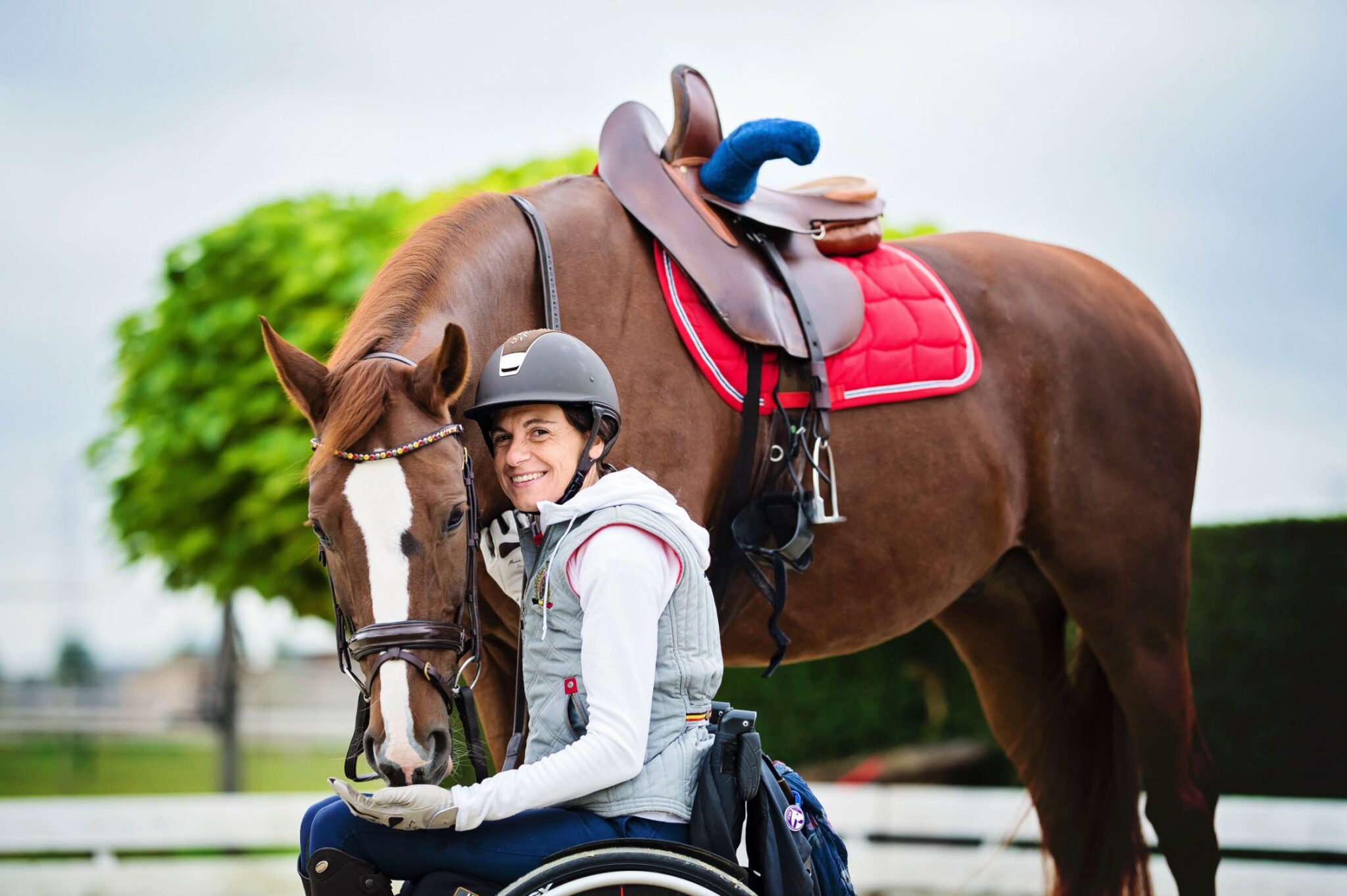
Wallonie-Bruxelles International – The Wallonia Export-Investment Agency, 2019
Wallonie-Bruxelles (Belgium)
“Sport breaks down all barriers”
Born in 1969
Barbara lives in Brussels
Barbara smiles when she talks about the moments of complicity with her horse and she says that she enjoys every moment. Regaining her balance on the horse was difficult at first, but feeling the physical sensations of the horse’s movement and breathing were the first step towards accepting her new body, which had been mutilated by numerous surgeries.
At the age of 26, Barbara was diagnosed with advanced cancer. The many surgeries to remove the tumor led to the immobilisation of one leg and gradually to her loss of mobility. Barbara’s cancer came back several times during 10 years. She got surgeries and long and painful treatments, imposed by doctors. Barbara is a survivor but these 10 years of uncertainties killed all her life plan and social life.
Horse riding gave Barbara the opportunity to re-establish social relations. She has met people who share her passion and, through competition, other disabled riders. This gave her new hindsights.
Today, Barbara is in contact with a young rider who recently lost her legs in an accident. For
Barbara, horse riding means freedom and friendship.
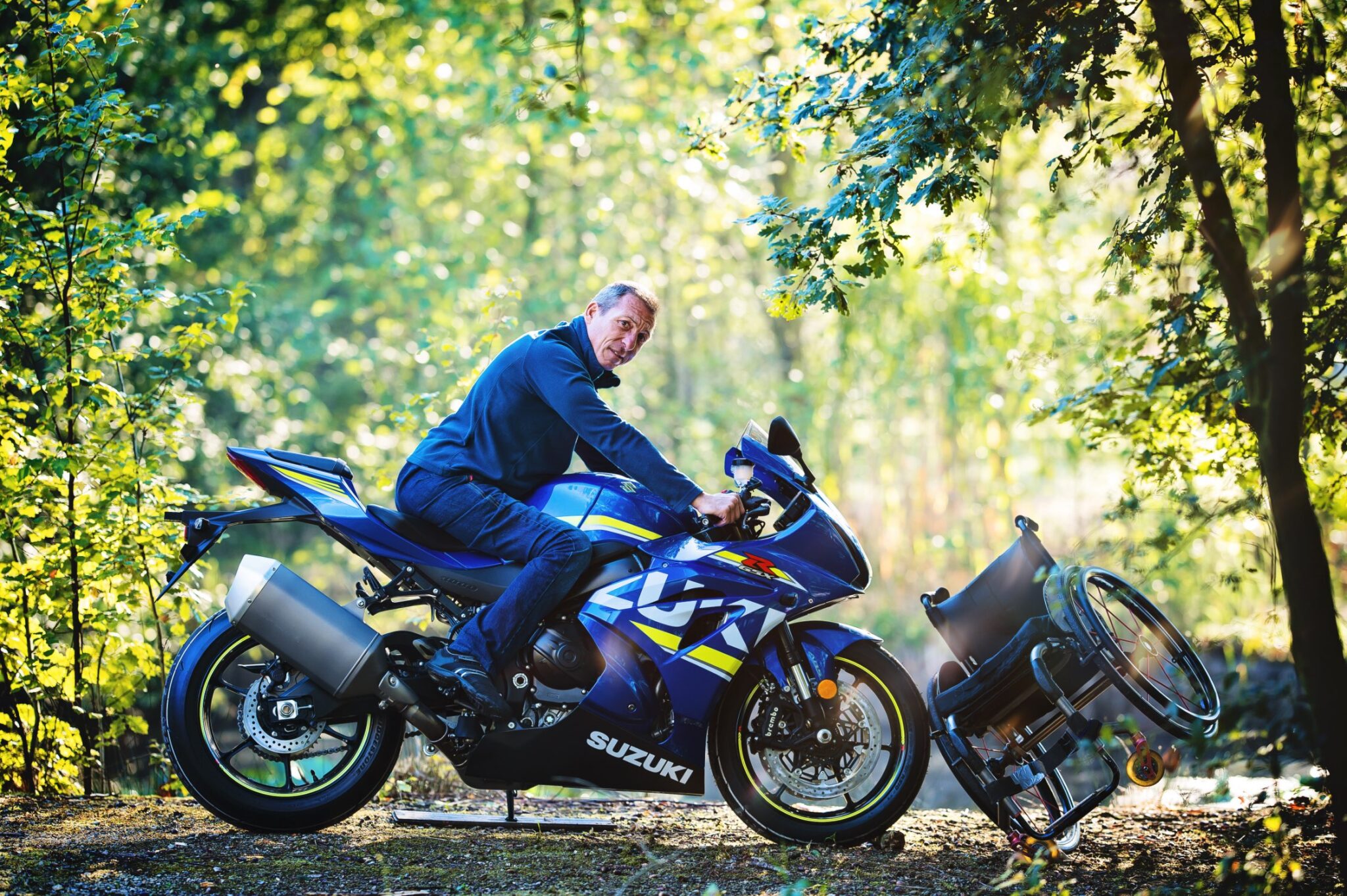
Wallonie-Bruxelles (Belgium)
“Nothing stops us from becoming the person we want to be”
Born in 1965
Christophe lives in Ville-Pommeroeul, a village close to the French border.
Christophe rides his life at 200 km/h but since the birth of his two daughters, he has switched his priorities. He wants to provide his daughters with the environment he did not have, to make them feel appreciated and to make sure they can get the bright future that they deserve. Christophe’s children are his greatest achievement even though they have been absent from his life for the last 7 years.
Christophe was a rebellious teenager, resenting his parents very much. He met bad friends in his neighborhood who convinced him to join a small heist, and then another slightly larger one. Christophe became a professional gangster by training. Money was pouring and he was living a glamorous and luxury life. But his last robbery went wrong and Christophe went to prison. A violent place where you don’t learn anything good. He was 20 years old. After two years of detention, he was released on parole and he found a job. He settled down with his future wife but life was not easy. Memories of his glamorous life fueled by easy money were obsessing while he was having a hard time working. Temptation to relapse was too difficult to resist in such conditions.
But a motorbike stopped Christophe’s trajectory at the age of 23. He was driving too fast. Upon waking up from consciousness, the doctor told him that he would never walk again in his life and that he would have to get used to it. Christophe lost the taste for life. But one day, four years later, he looked in the mirror and did not like the reflection of the man who was watching back. So Christophe decided to change and started sport again. He rediscovered the exhilarating feeling of taking on challenges and winning them.
Today, Christophe feels that he has reached his physical limits for competition and Tokyo represents his last hope to reconnect with his daughters. This would be a source of great pride. If he can realize his secret hope, he will be able to retire from sport a happy man.
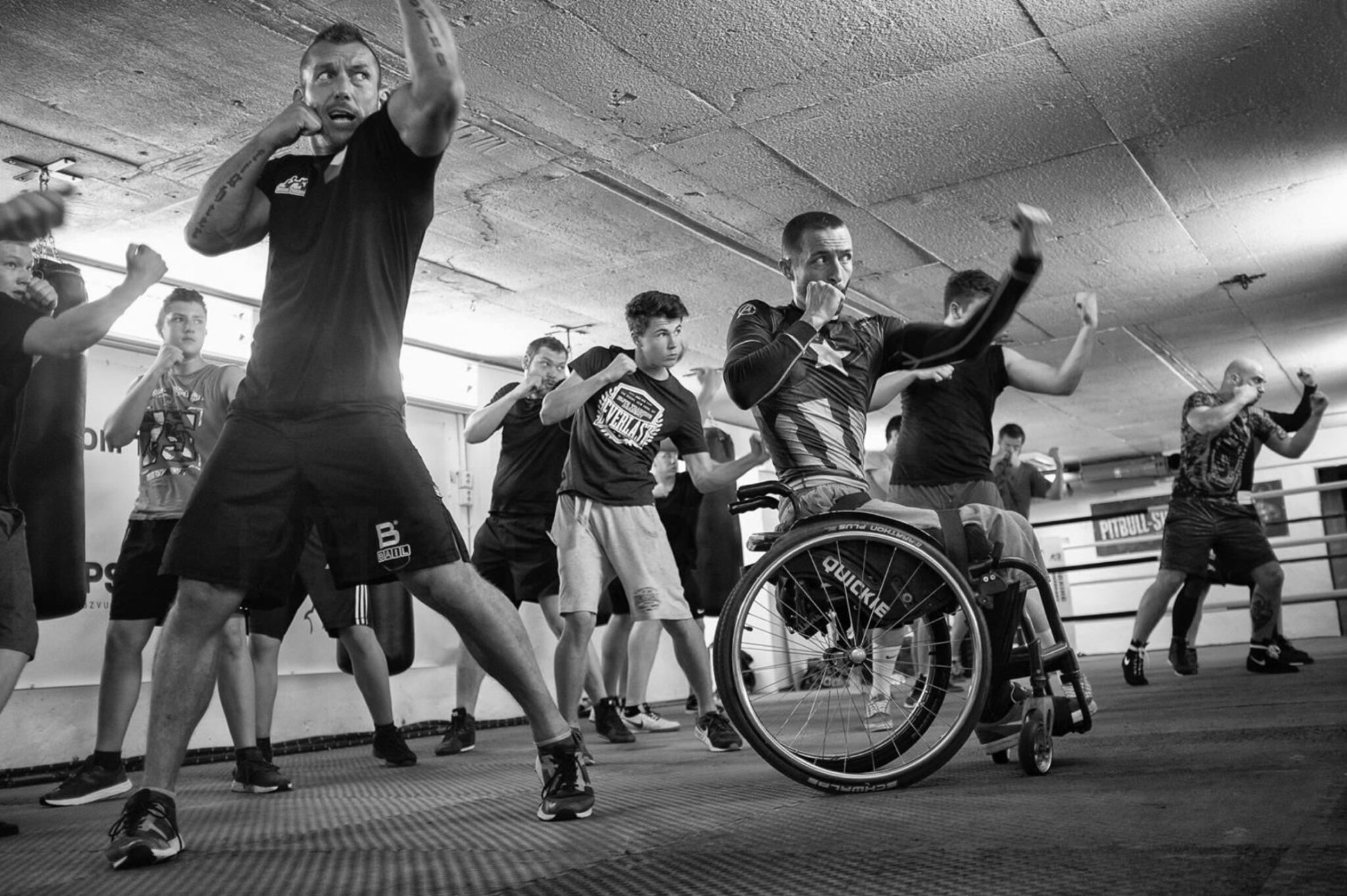
Czech Republic
Zdenĕk Šafránek is the captain of the Czech Republic Para Ice Hockey team, and has participated in three Paralympic Games. He has been in a wheelchair since an accident at work in an auto repair shop in 2003. He also represents his country in mountain biking and handcycling, and in 2017–18 was the Czech Republic’s champion paraboxer. Šafránek was fighting a serious health issue in 2018. Although he suffered terribly, he suffered inside. He lives in the town of Pátek, near Podĕbrady, in the Czech Republic, with his partner and three children.
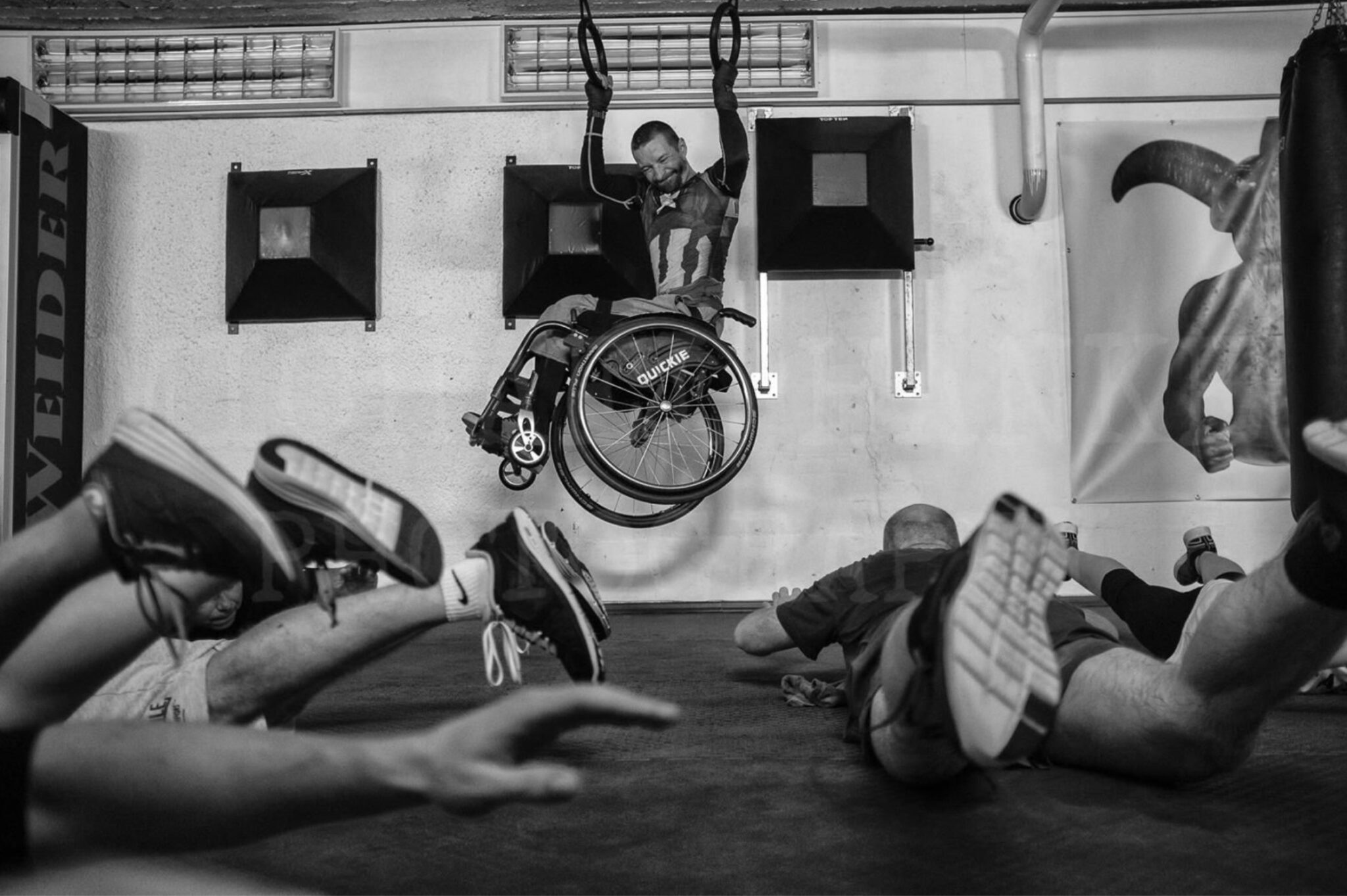
Czech Republic
Zdenĕk Šafránek is the captain of the Czech Republic Para Ice Hockey team, and has participated in three Paralympic Games. He has been in a wheelchair since an accident at work in an auto repair shop in 2003. He also represents his country in mountain biking and handcycling, and in 2017–18 was the Czech Republic’s champion paraboxer. Šafránek was fighting a serious health issue in 2018. Although he suffered terribly, he suffered inside. He lives in the town of Pátek, near Podĕbrady, in the Czech Republic, with his partner and three children.
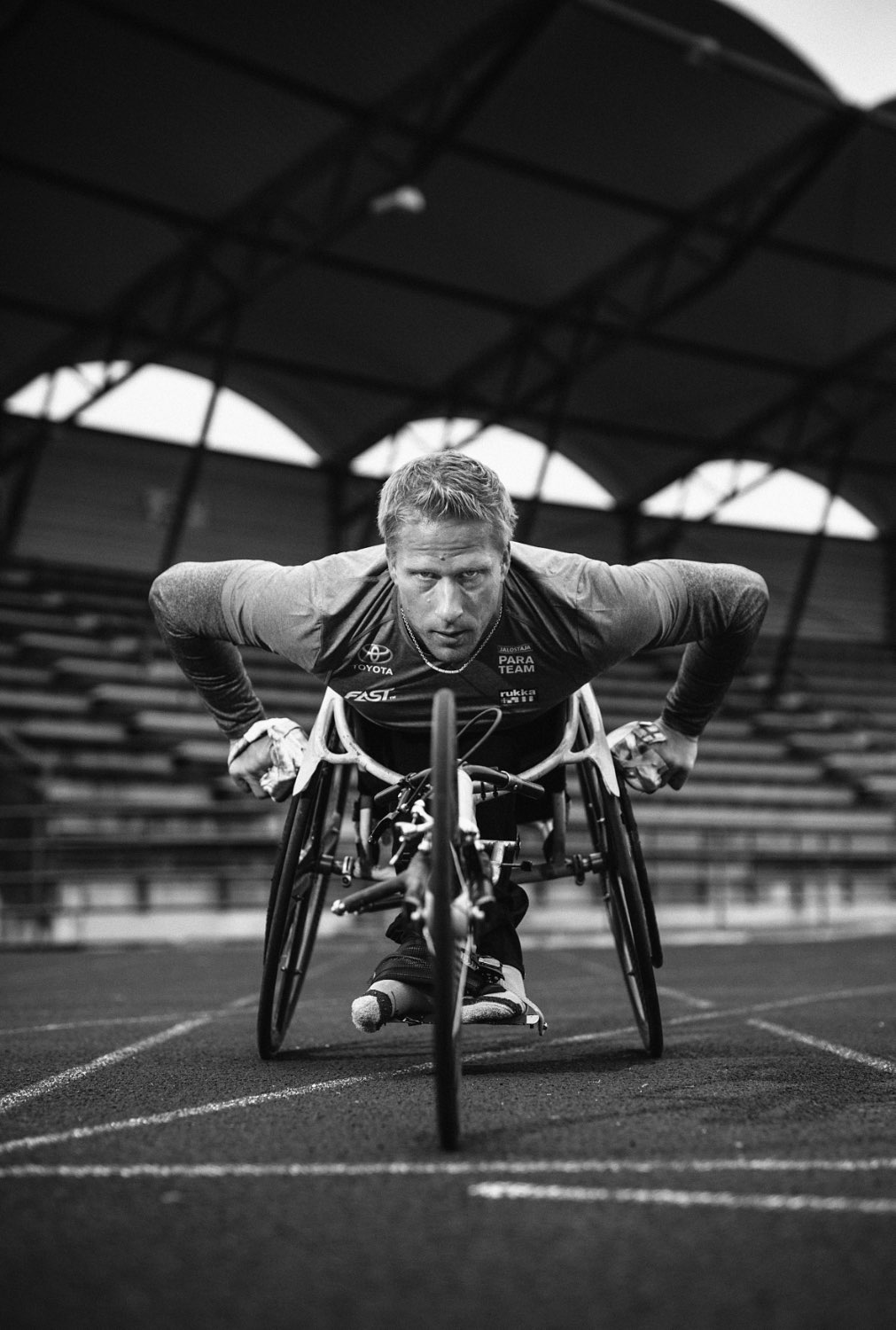
Finland
Leo-Pekka Tähti is clearly a top athlete who always strives to win the competitions. He trains very hard and always sets his goals as high as possible. Pekka has often proven to be one of the best in the world and the fastest on the track. It has been such a pleasure to meet Leo-Pekka twice and see his commitment and passion for the sport and life. All the photos are taken in Pori, in the city where Leo-Pekka was born and started training sports.
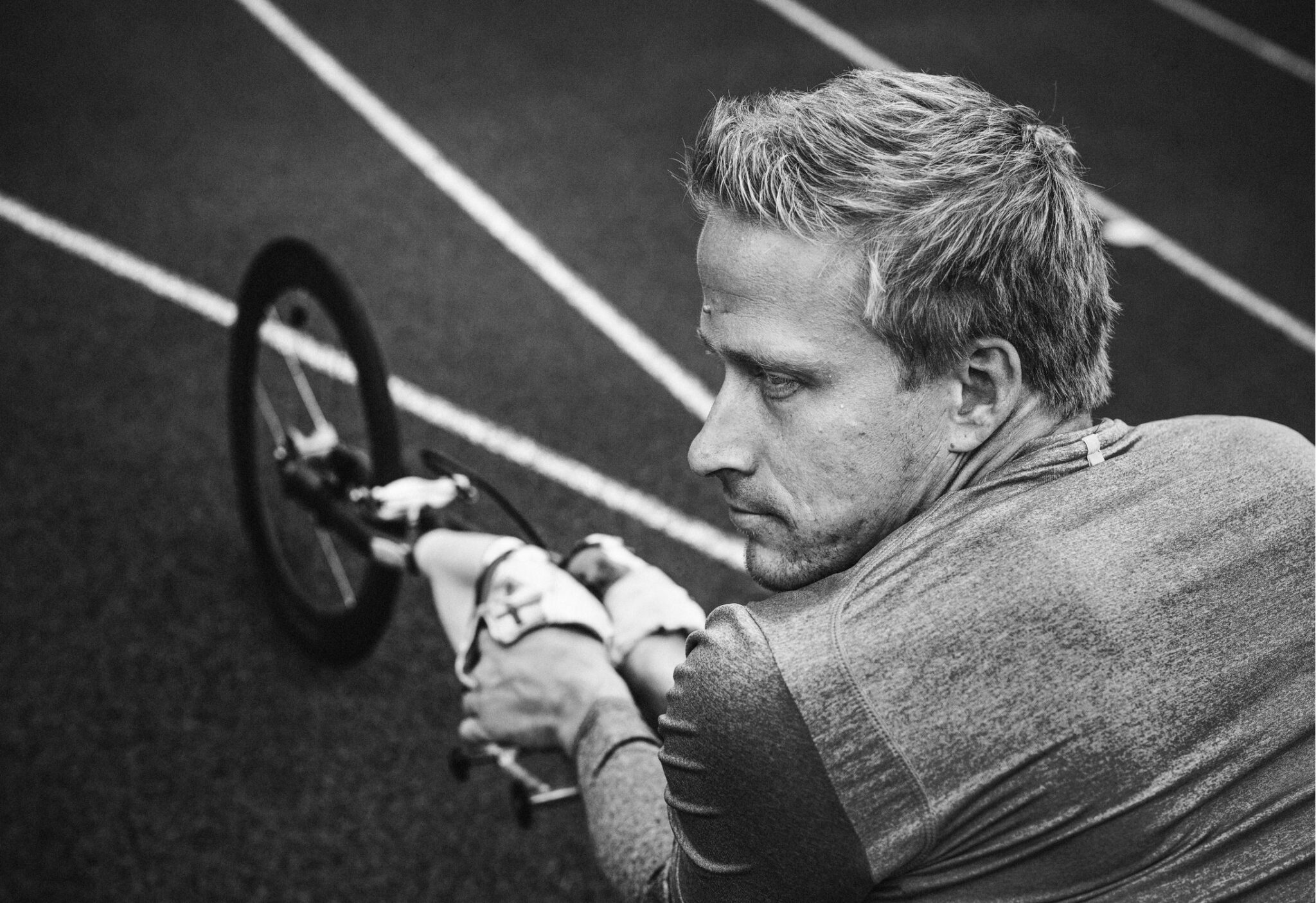
Finland
Leo-Pekka Tähti is clearly a top athlete who always strives to win the competitions. He trains very hard and always sets his goals as high as possible. Pekka has often proven to be one of the best in the world and the fastest on the track. It has been such a pleasure to meet Leo-Pekka twice and see his commitment and passion for the sport and life. All the photos are taken in Pori, in the city where Leo-Pekka was born and started training sports.
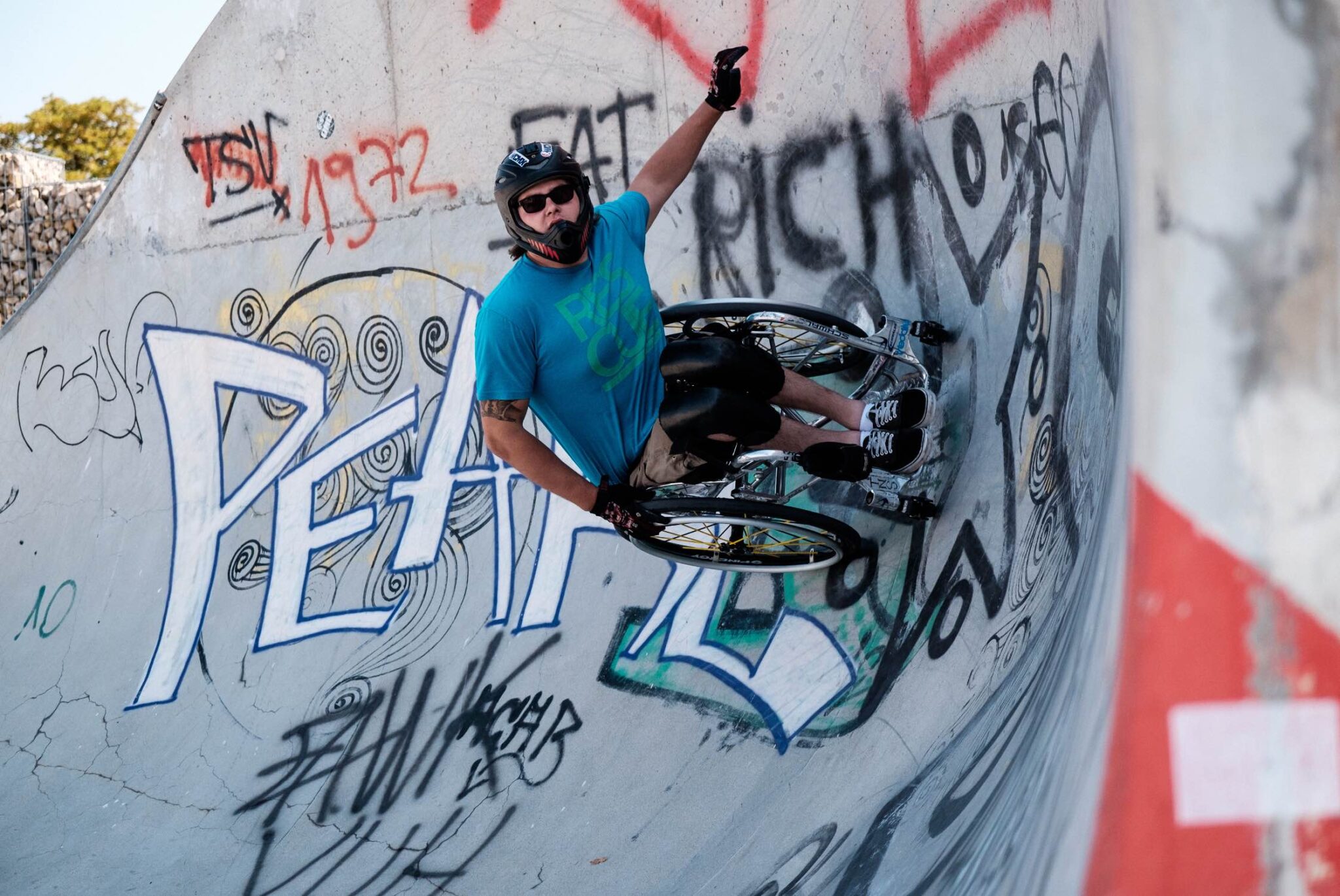
Germany
David Lebuser is one of the best wheelchair skaters in the world. He passes on his knowledge and ability to other wheelchair skaters in workshops. This way the participants get to know their wheelchair better and train their skills. Curbs and small steps are rarely an obstacle afterwards.
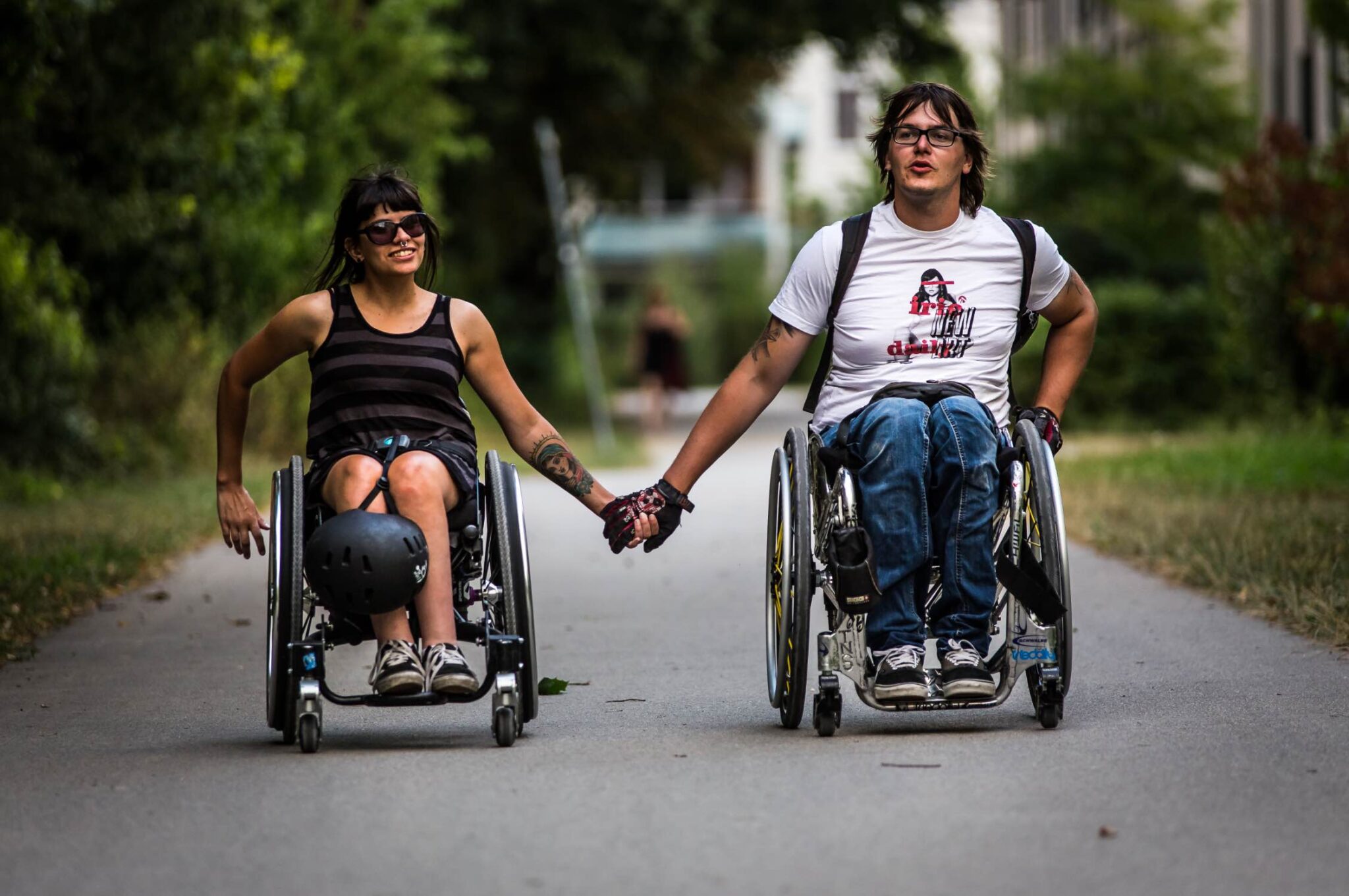
Germany
Lisa Schmidt and David Lebuser test the skatepark in Munich, because both are wheelchair skater (WCMX). David Lebuser is one of the best wheelchair skaters in the world. He passes on his knowledge and ability to other wheelchair skaters in workshops. This way the participants get to know their wheelchair better and train their skills. Curbs and small steps are rarely an obstacle afterwards. Lisa Schmidt is also an activist for inclusion.
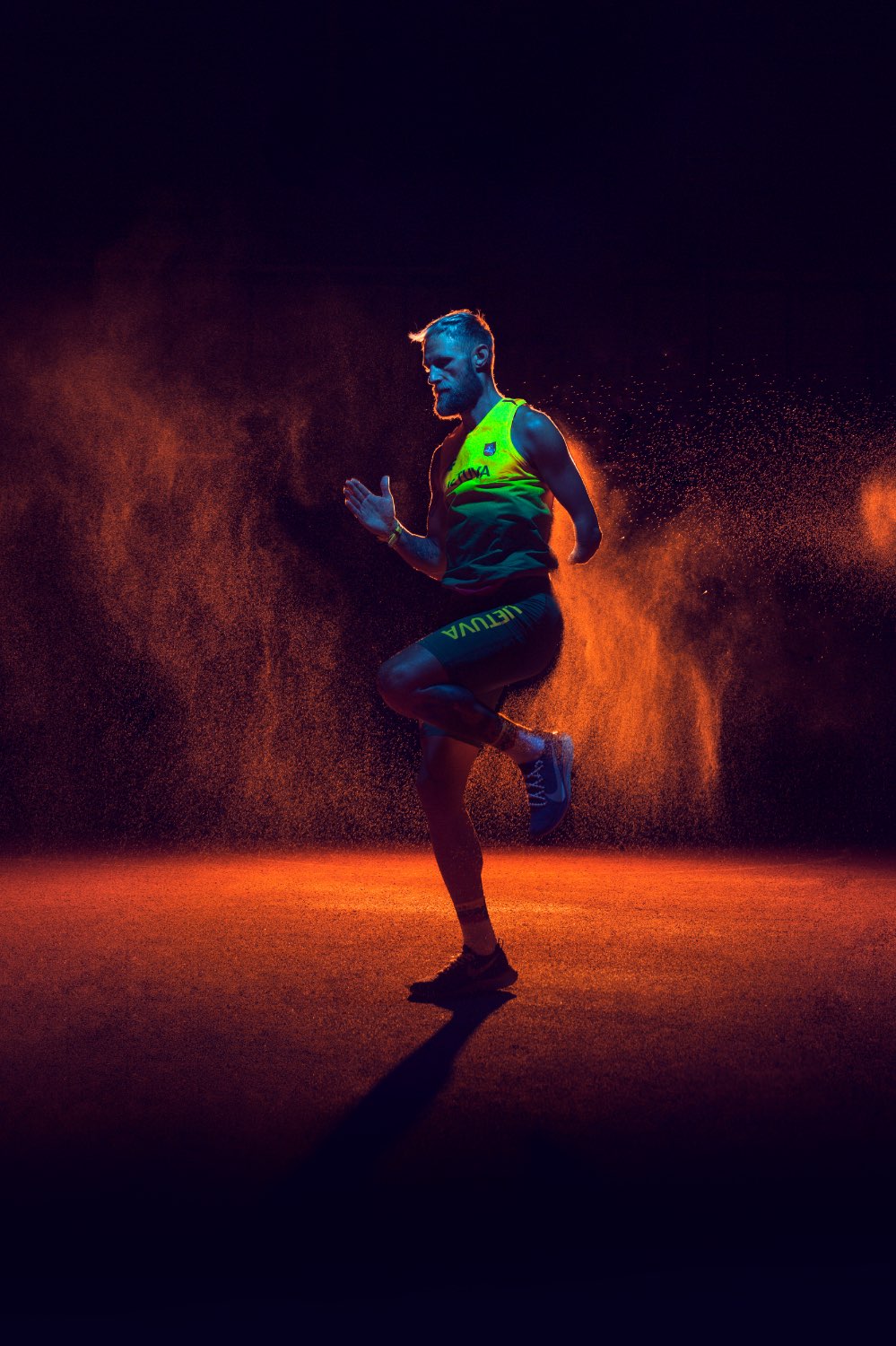
Lithuania
A few years ago, Ernestas Česonis dived into a new sport – para-triathlon, and he says that a new meaning of life has emerged. Now people recognize him on the street, write to him on social networks. At first, it was unusual to him to hear others say “you are an example to us, you inspire us”. But it is good to feel that you can motivate others.
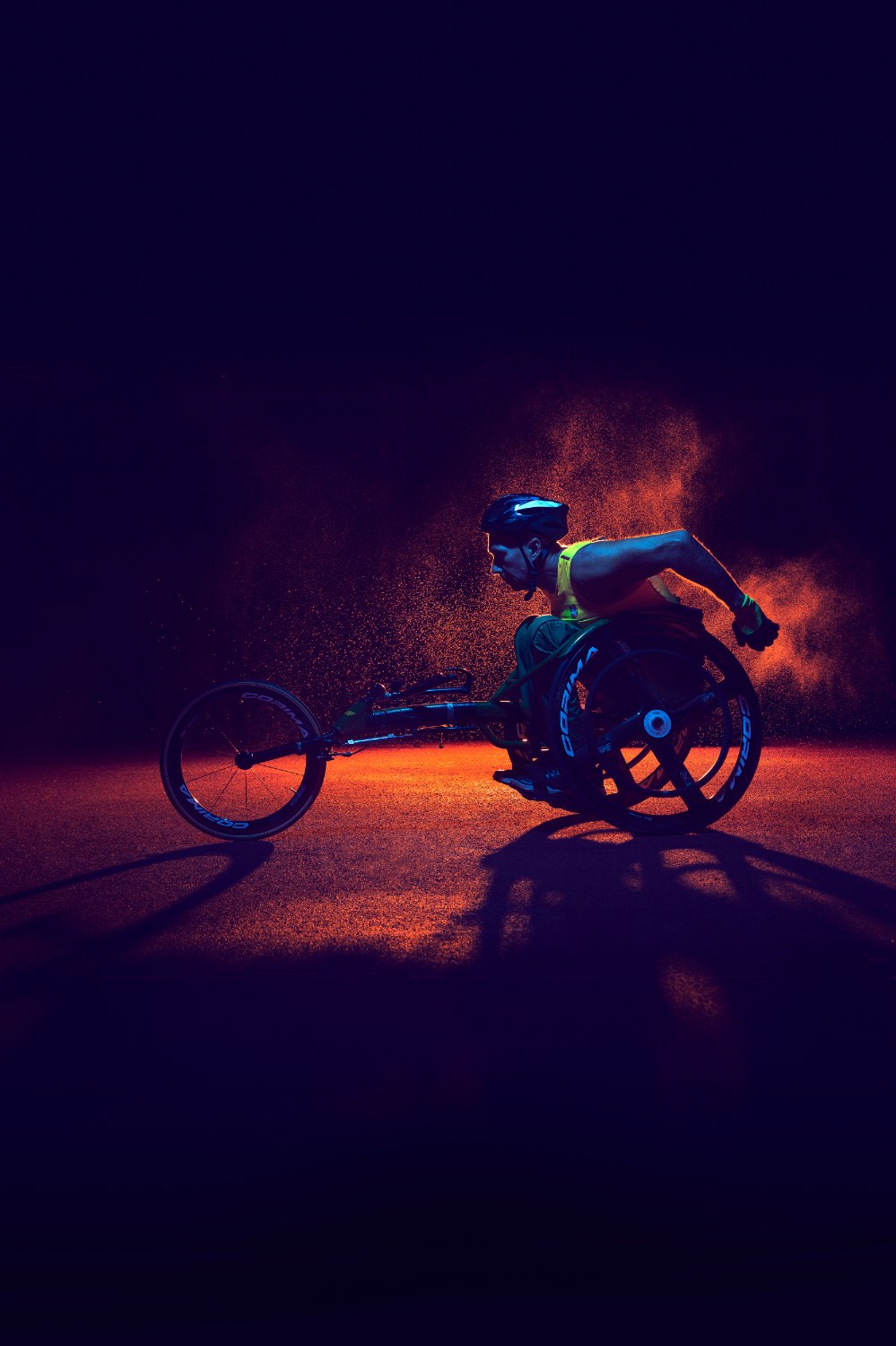
Lithuania
Kęstutis Skučas‘ motto is “Whatever happens, you need to enjoy this day and never leave yourself out of life”. The silver medal winner in swimming of the Paralympic Games in Athens in 2004 says that sports has helped him to regain his self-esteem. He took up wheelchair basketball in 1991, and has coached and played for wheelchair basketball team in Kaunas. Kęstutis has a PhD in social science.
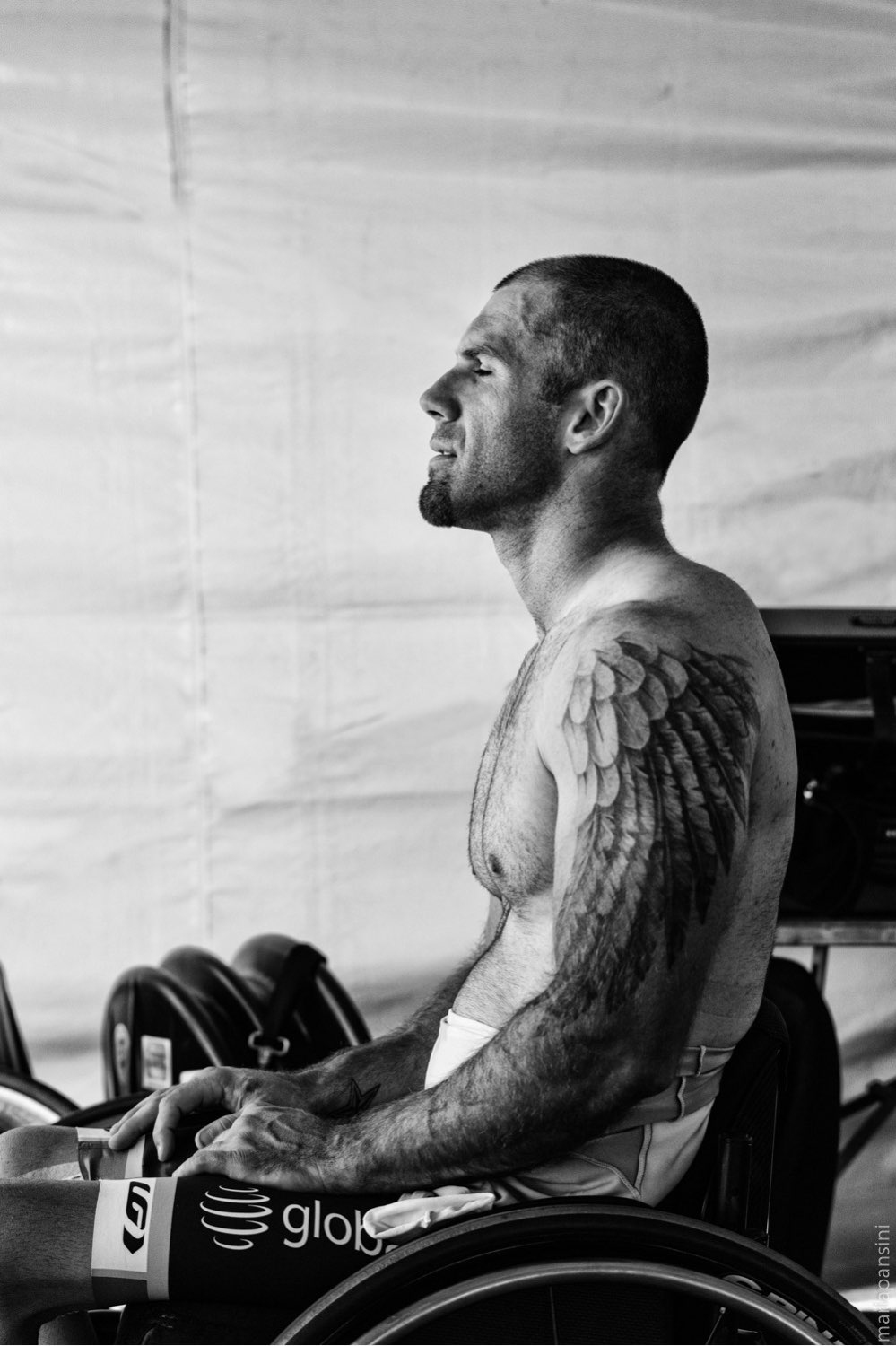
Italy
The Para-cycling athletes are, as every sports person, disciplined and strong minded people plus that extra big component that comes from a place of pain and suffering that in the end becomes their strength.
In 2017, Pietermaritzburg, South Africa was the home of the Para-cycling road World Championships with the best national teams of the world. I portrayed the great champions in their own stands before the race and right after it. They wore the tension and tiredness that the sports world requires that was soon to be released when experiencing the sensation of the fly. Here the Italian Paralympic national team showed once again to be one of the most prizewinning leagues of the World Championships Para-cycling road of 2017. I was able to observe from a small distance the courage and determination of this group of people that were as close and helpful to each other as if they were a real family.
The world championships victories are not only the result of long training periods, but also the consequence of the hard work and care of a community of trainers, physiotherapists, mechanists, wives and husbands that together support these athletes in their daily lives.
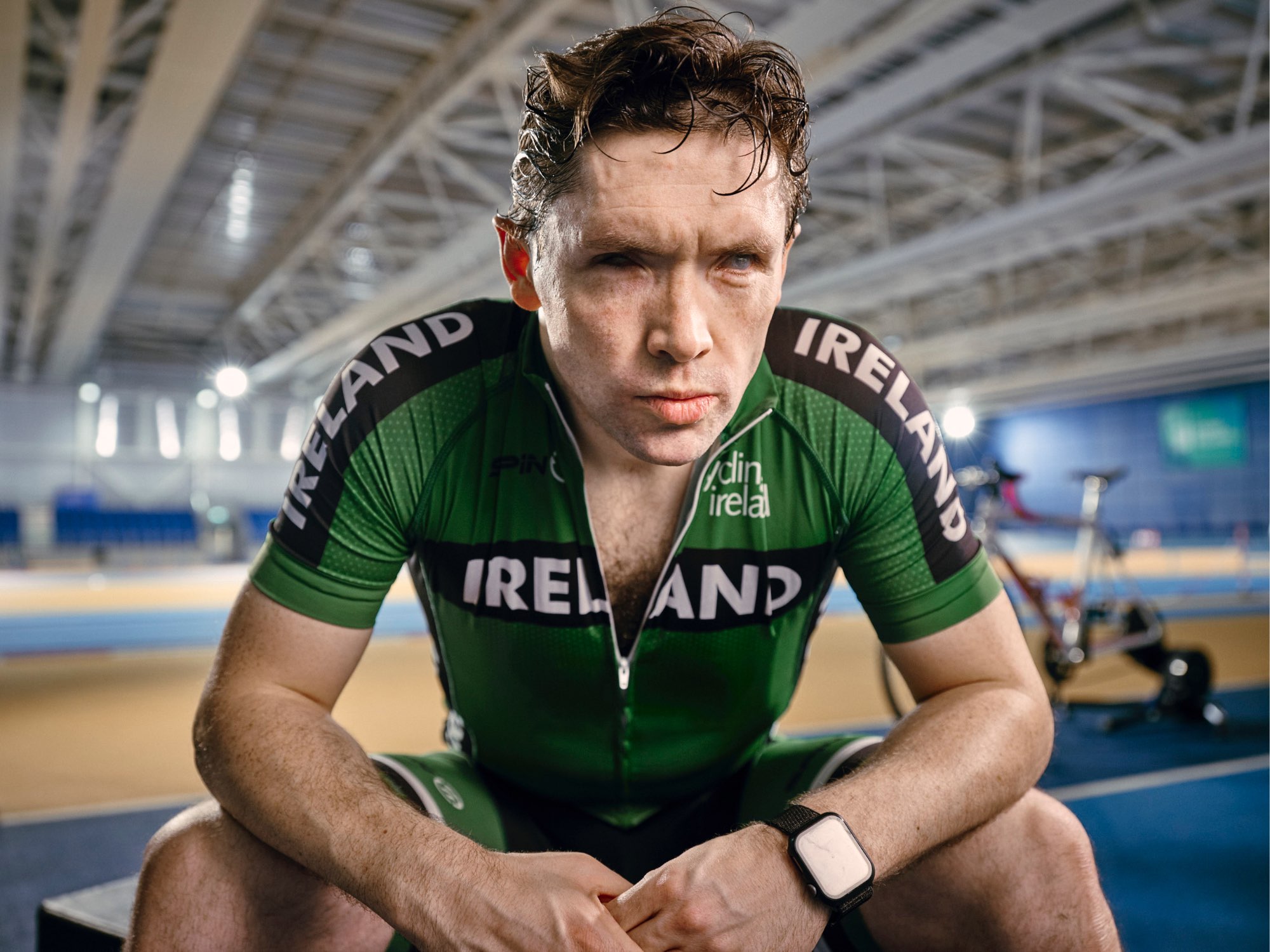
Ireland
Martin ‘The Flash’ Gordon, from Sligo in the West of Ireland, is a World Cup medallist and holder of a national record time in the 200m sprint. Martin was inspired to start cycling during a charity event for Irish Guide Dogs in 2007. He has been a strong supporter of Irish Guide Dogs, from being the youngest ever Guide Dog Owner over 15 years ago to being on the Board today. Tokyo 2020 will be his first appearance in a Paralympic Games. He and his pilot, Eamonn Byrne will compete in the 4000m Pursuit, 1000m TT and Road TT.
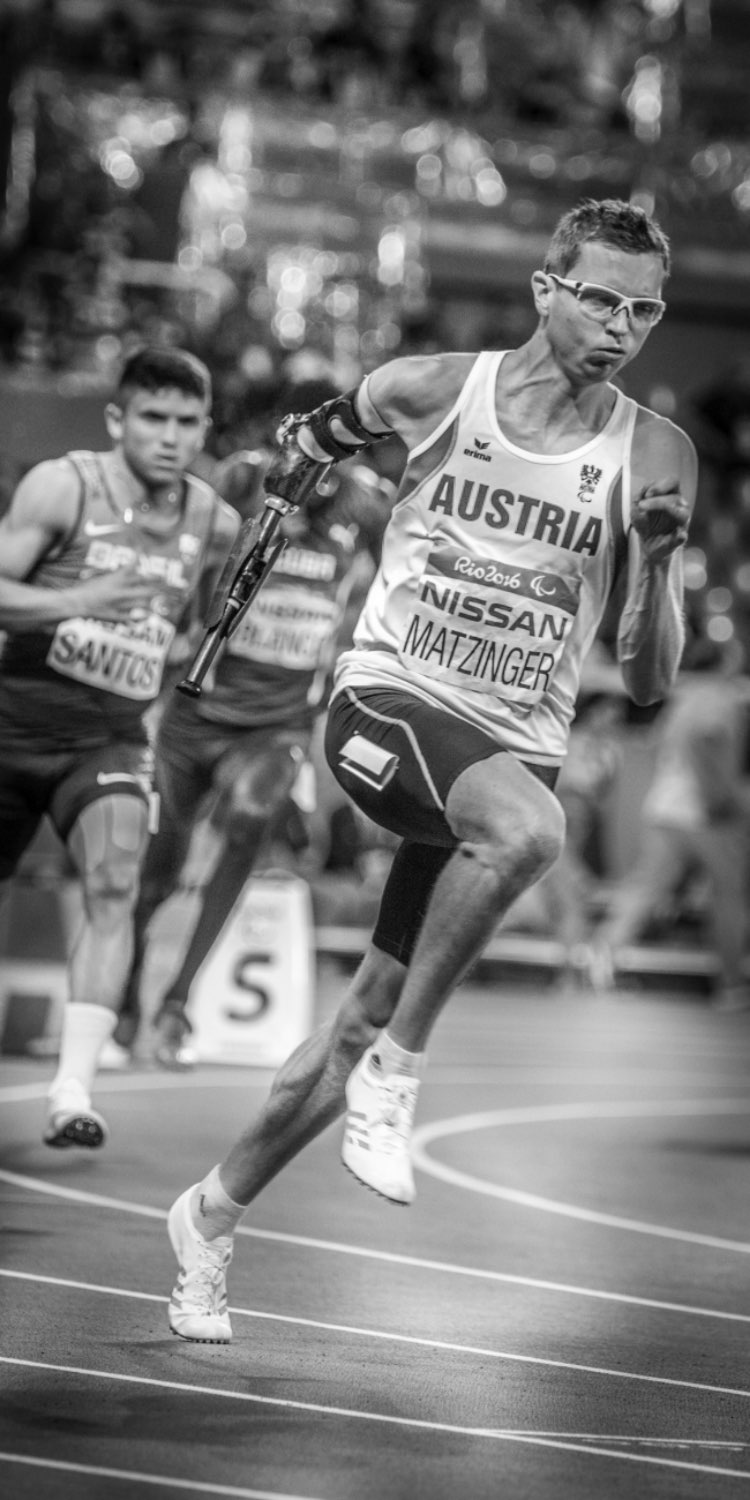
Austria
at the Paralympics RIO 2016 / Discipline: 400m T47 / Year: 2016 / Günther MATZINGER won the Bronze-Medal
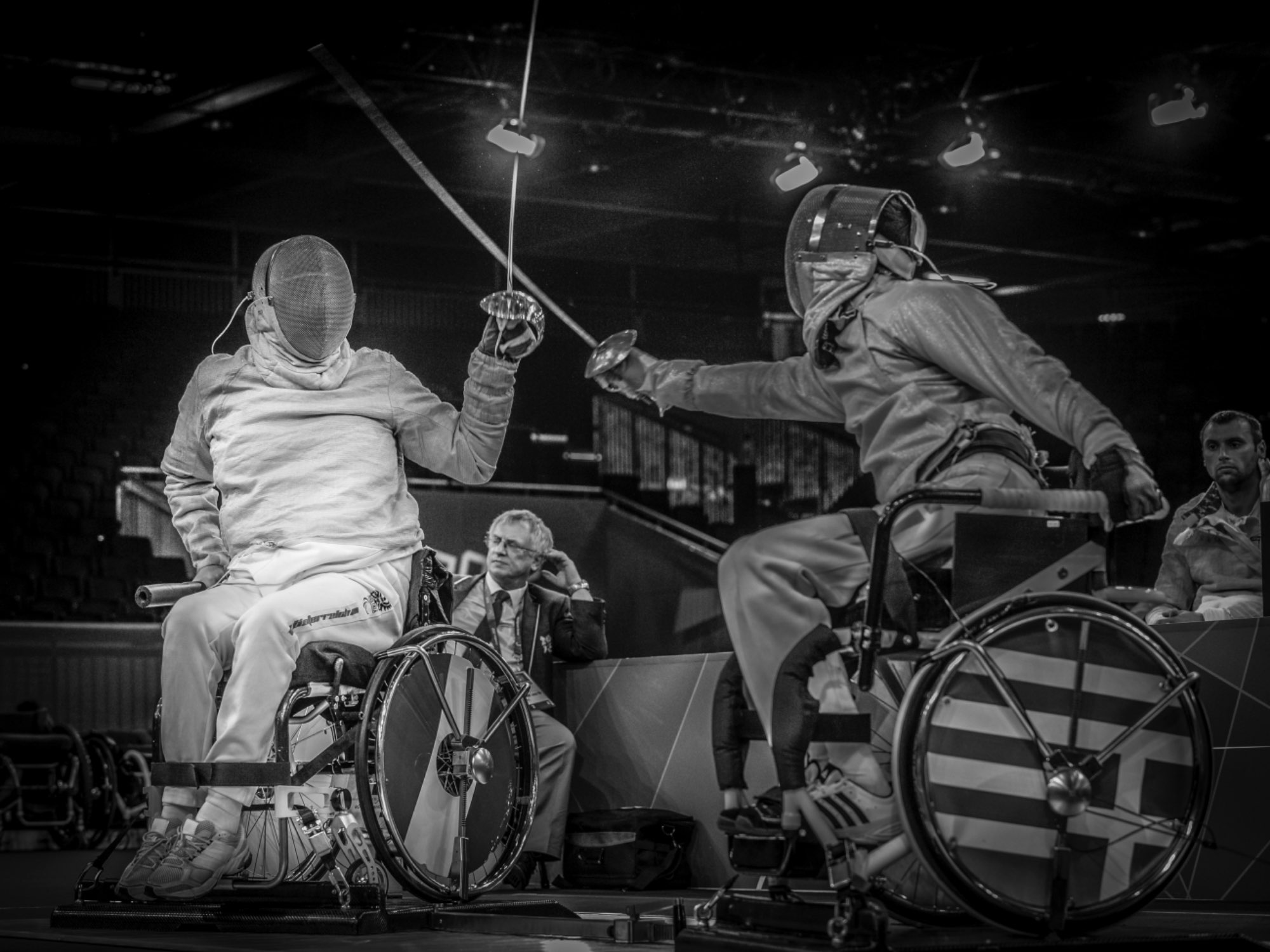
Austria
at the Paralympics LONDON 2012 / Discipline: Sabre Category B, Men / Year: 2012 / Manfred BÖHM achieved rank 15
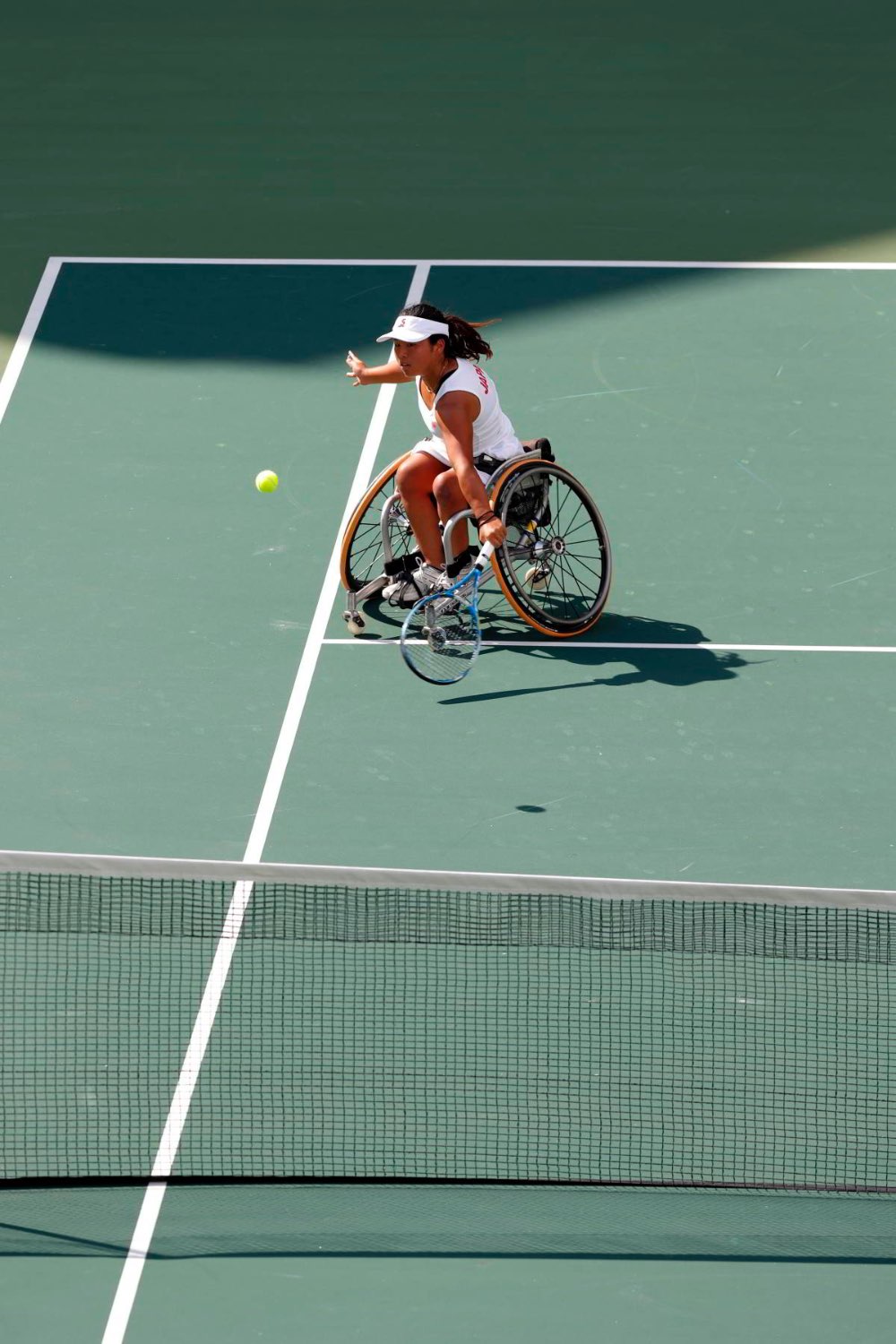
Wheelchair Tennis Women – Yui KAMIJI – Rio de Janeiro 2016
Japan
Born in 1994. Suffers from latent spina bifida and had been experiencing difficulty in walking as she grew up. Started playing wheelchair tennis since 11 years old. At the age 14, she has become the youngest to attain the top ranking in Japan. She competed in 2012 London Paralympics as a junior in her high school and won the 8th place award. At the 2016 Rio Paralympics, she on the Bronze Medal. During her participation in the 4 big titles, she has won 24 championships in both singles and doubles competitions.
Photo: KAMIJI competing during 2016 Rio de Janeiro Paralympics.
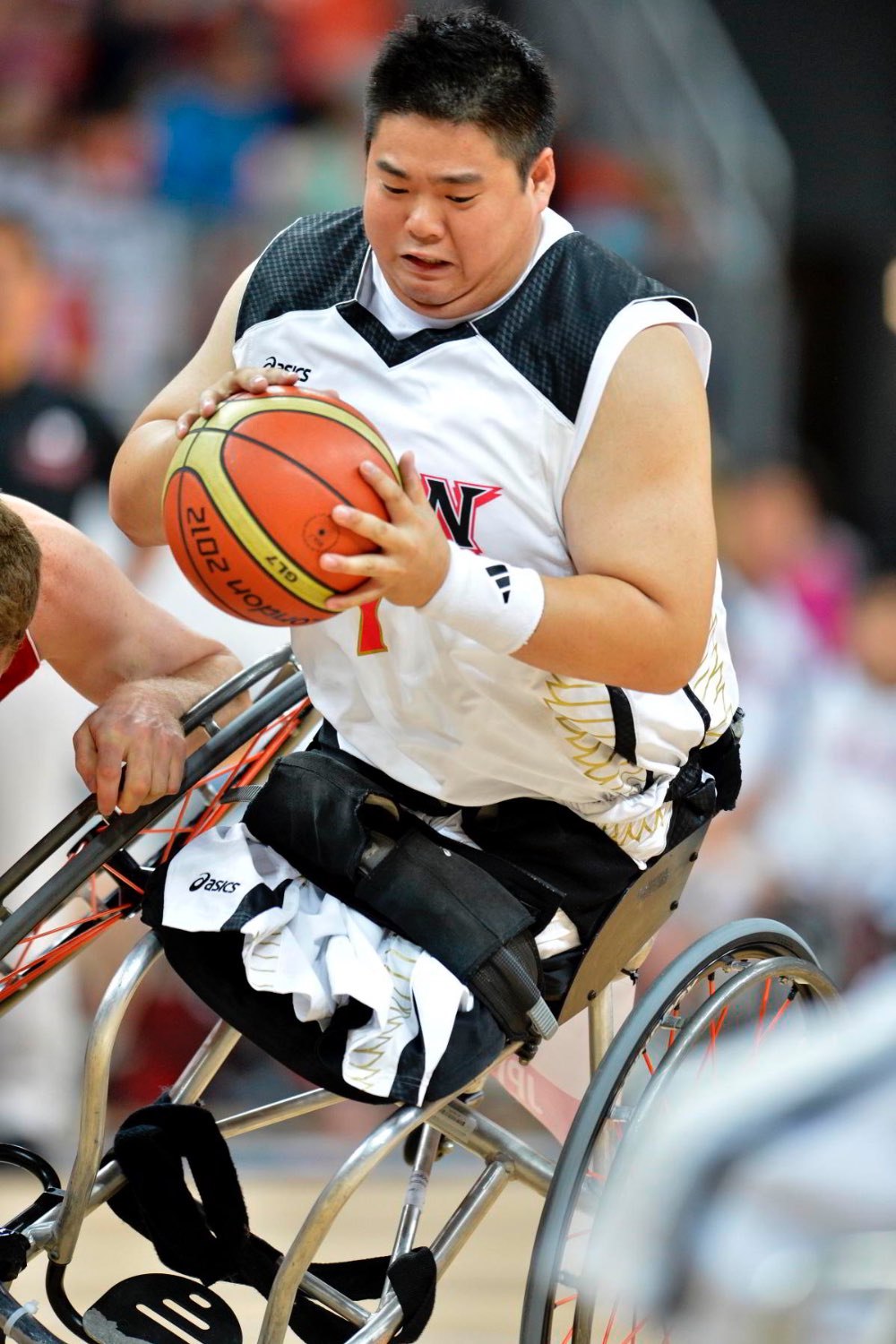
Japan
Born in 1988. Suffers from congenital defect in the lower extremities (above the knees). Started playing the wheelchair basketball since age 12. After graduating from high school he went to the US by himself for attending the University of Illinois. He was a star player in the wheelchair basketball team of the university and received season MVP awards 2 years in a row. He then played the sports professionally as well as selected as a member of the Japanese national team. He has been a paralympian since 2008 Beijing and 2020 Tokyo is his 4th consecutive Paralympics.
The photo is from 2012 London Paralympics.
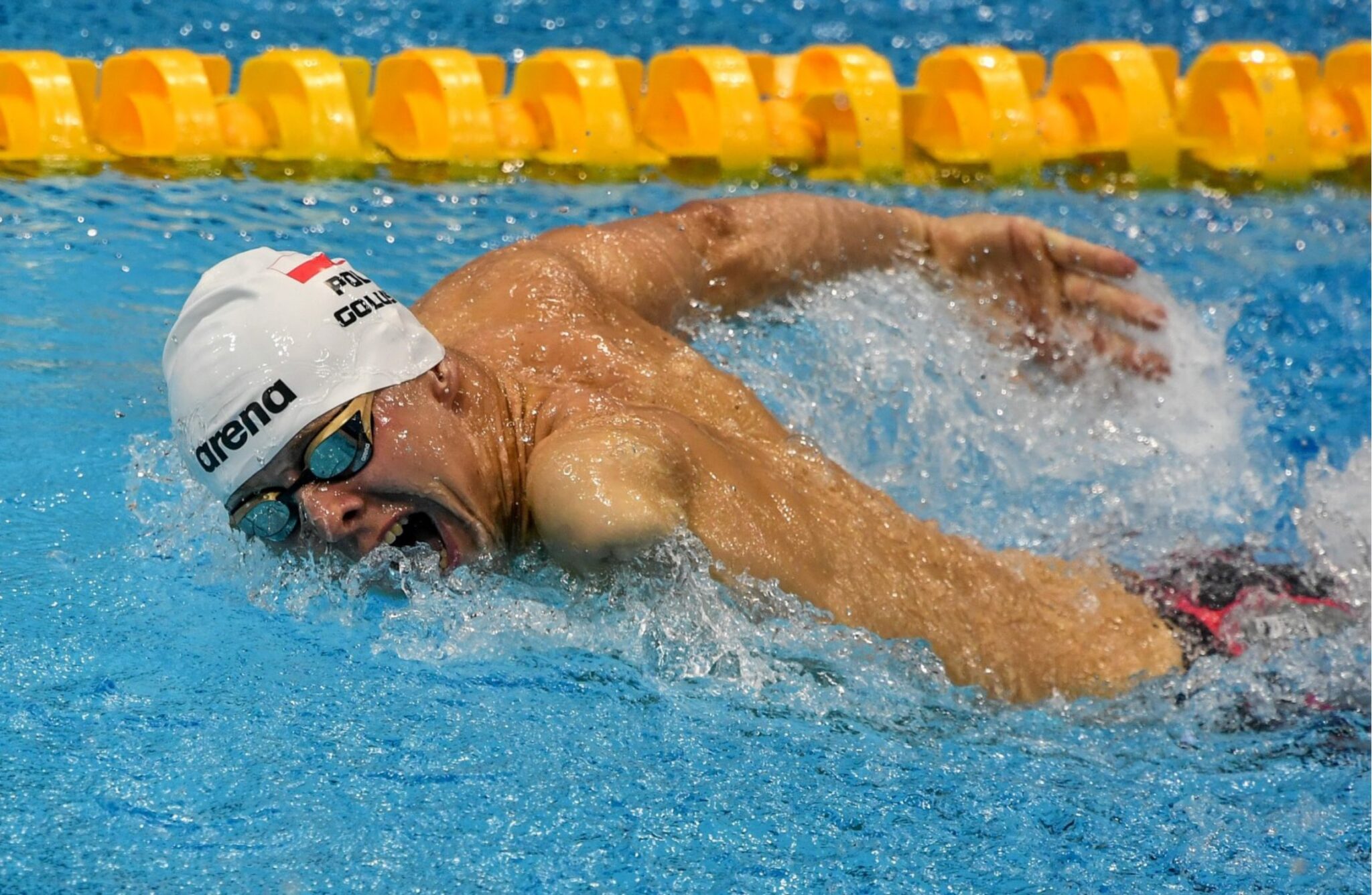
Poland
Michał Golus of Poland, born in 1995, won the 50 and 100 metre freestyle at the 2018 World Para Swimming European Championships in Dublin and bronze medal during World Para Swimming Allianz Championships in London 2019. He is representing Poland in Tokyo 2020. The photograph presents Michał Golus during World Para Swimming Allianz Championships, London 2019, when he won bronze medal in 100 metres butterfly stroke.
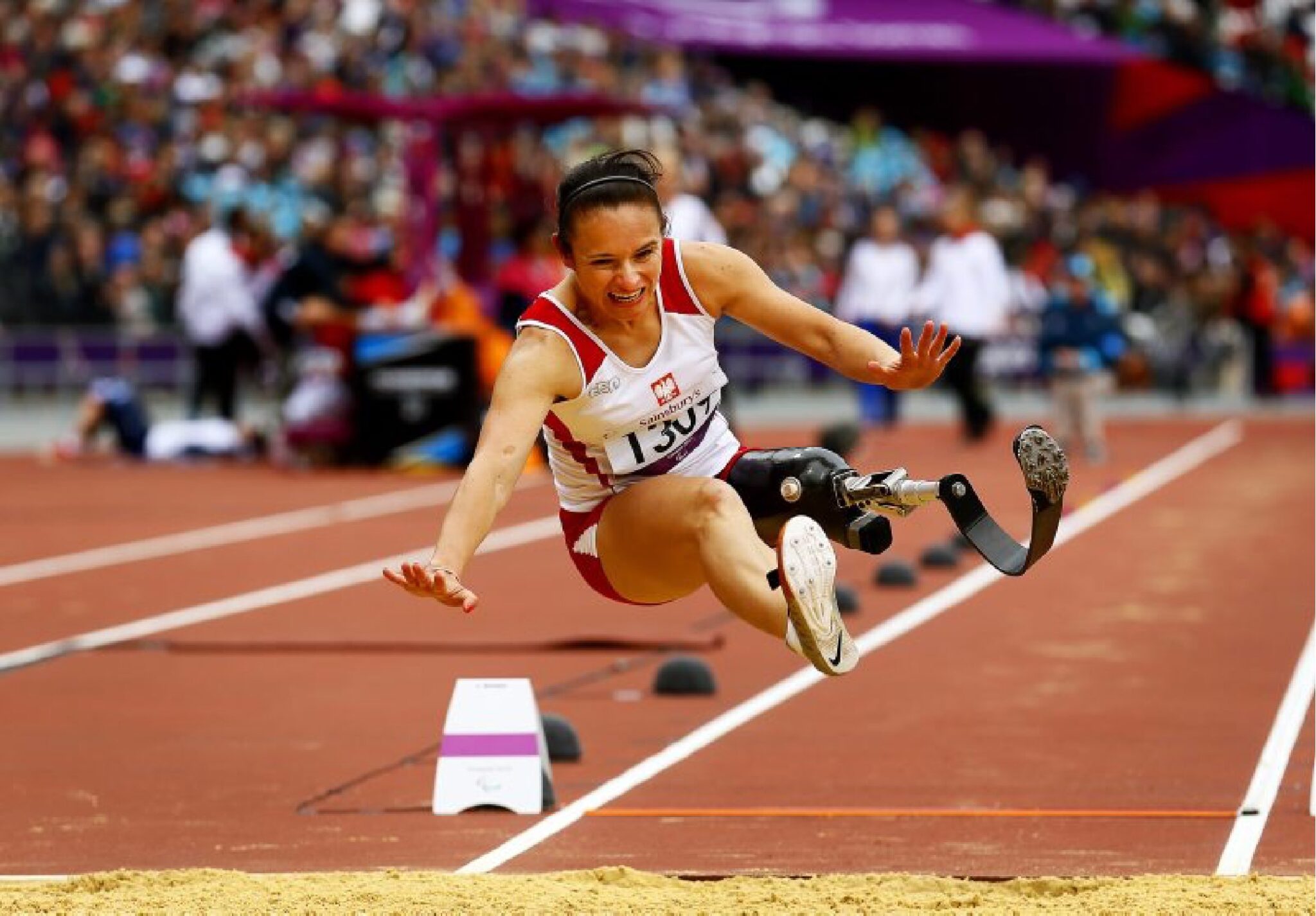
Poland
Ewa Zielińska of Poland won a bronze medal in Long Jump during the Beijing 2008 Paralympic Games. She was born in 1972 and at age 17 she was diagnosed with bone cancer, which resulted in amputation of her left leg above the knee .In the photograph Ewa Zielińska competes in the women’s Long Jump F42/44 final at the Olympic Stadium during the London 2012 Paralympic Games in London, Britain, 02 September 2012.
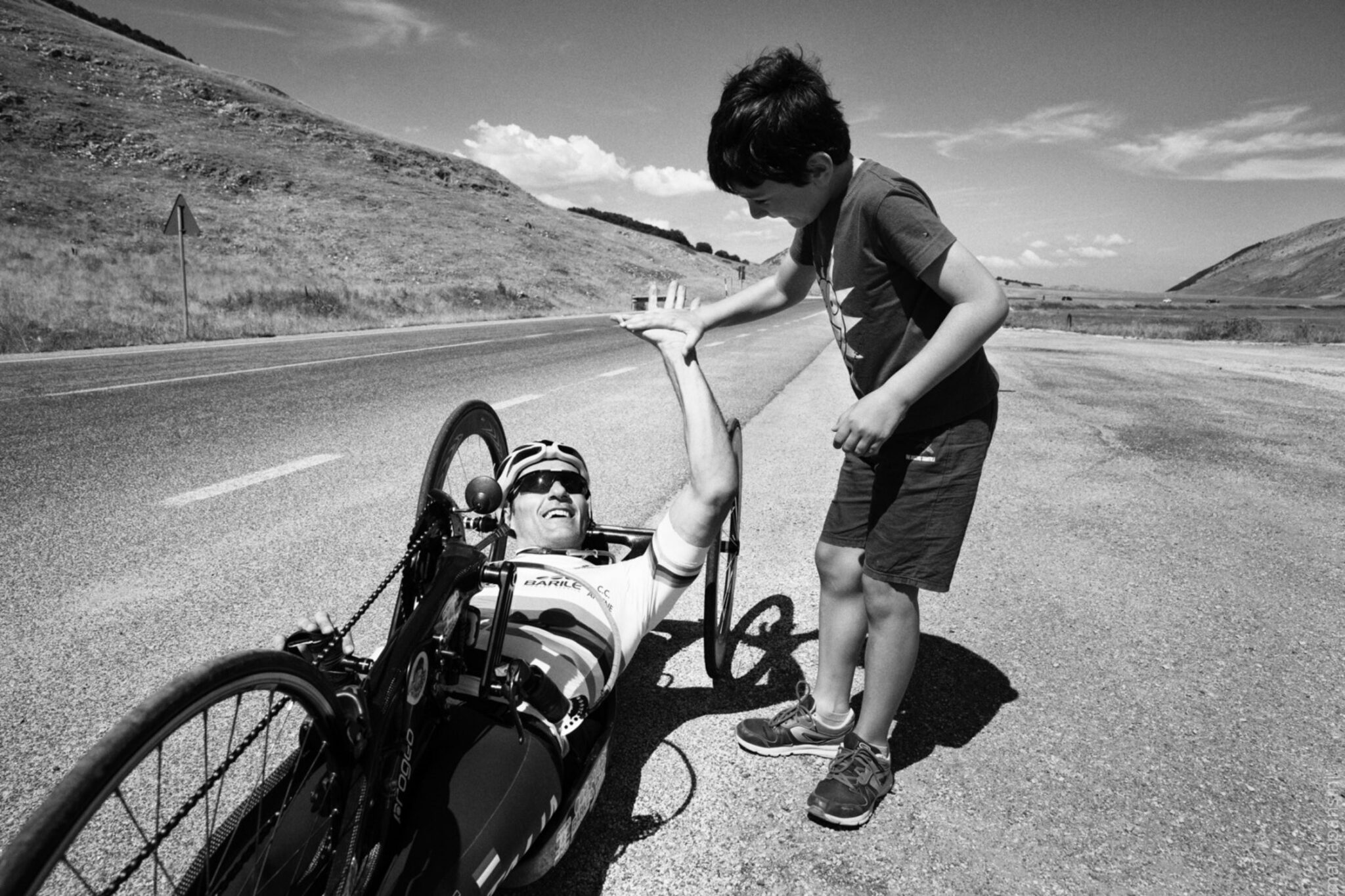
Italy
Luca Mazzone was born in Puglia, Italy in 1971. He loves soccer, boxing and body building. In 1990 Luca went for a swim in the Mediterranean sea, as he was used to, but this time the impact against a rock was really bad: medullary lesion of the sixth cervical vertebra. As a consequence Luca was bound to using a wheelchair. After some time he decided to return to sport as a paralympic swimmer. The results he got were good but not enough for his standards, and he gave up swimming in 2008. A turning point was in 2011, when Luca discovers handbike (paracycling), becoming soon a champion. At the last world championships in South Africa, in 2017, Luca was the the most prizewinning athlete. From 2013 to today, he has won 11 world titles and 5 paralympic medals.
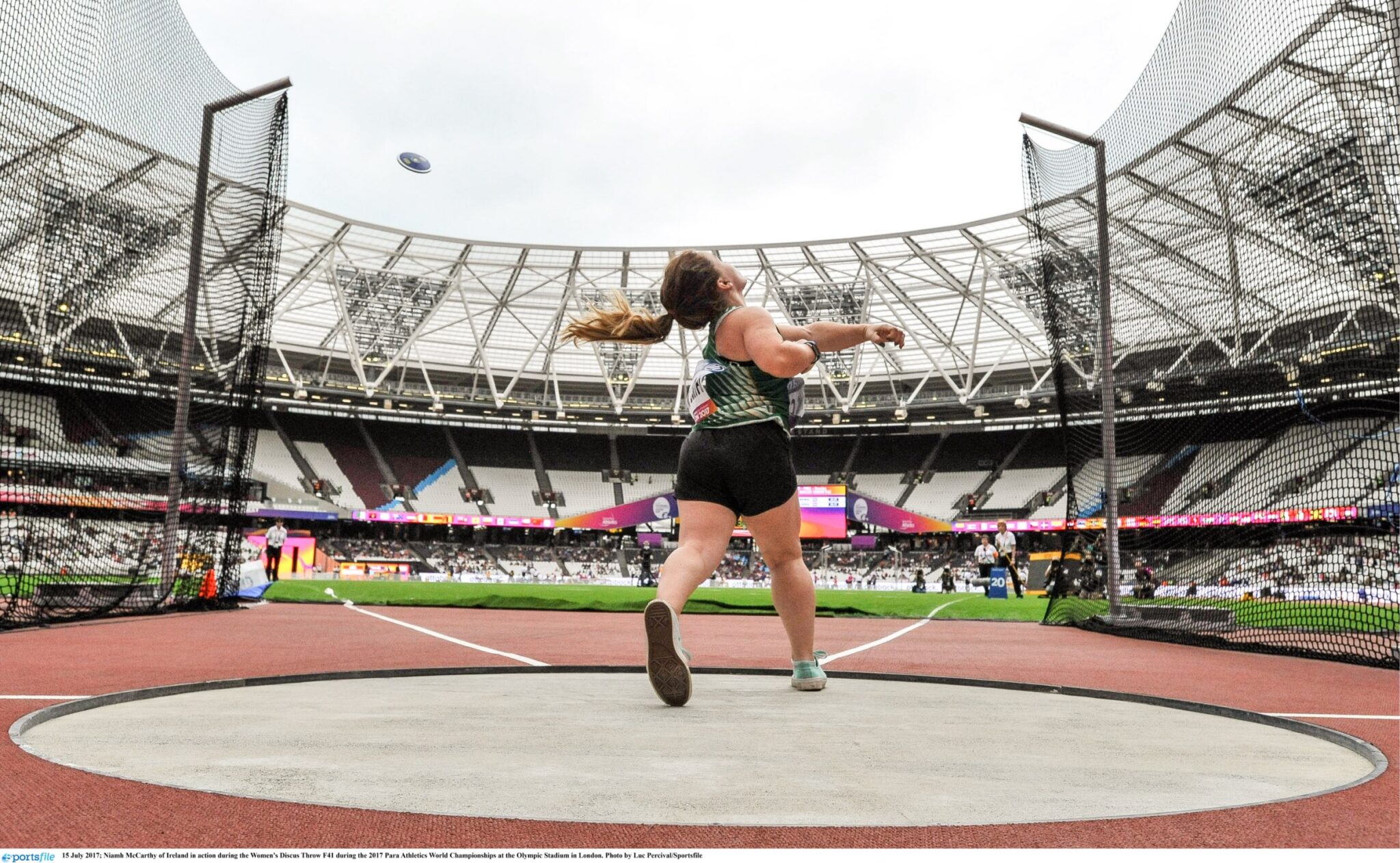
Ireland
Discus Thrower Niamh McCarthy from Cork, Ireland’s second city, is a Paralympic silver medallist and three times World Championship medallist. She has been active in campaigning for Paralympic athletes and also enjoys skydiving as a hobby!
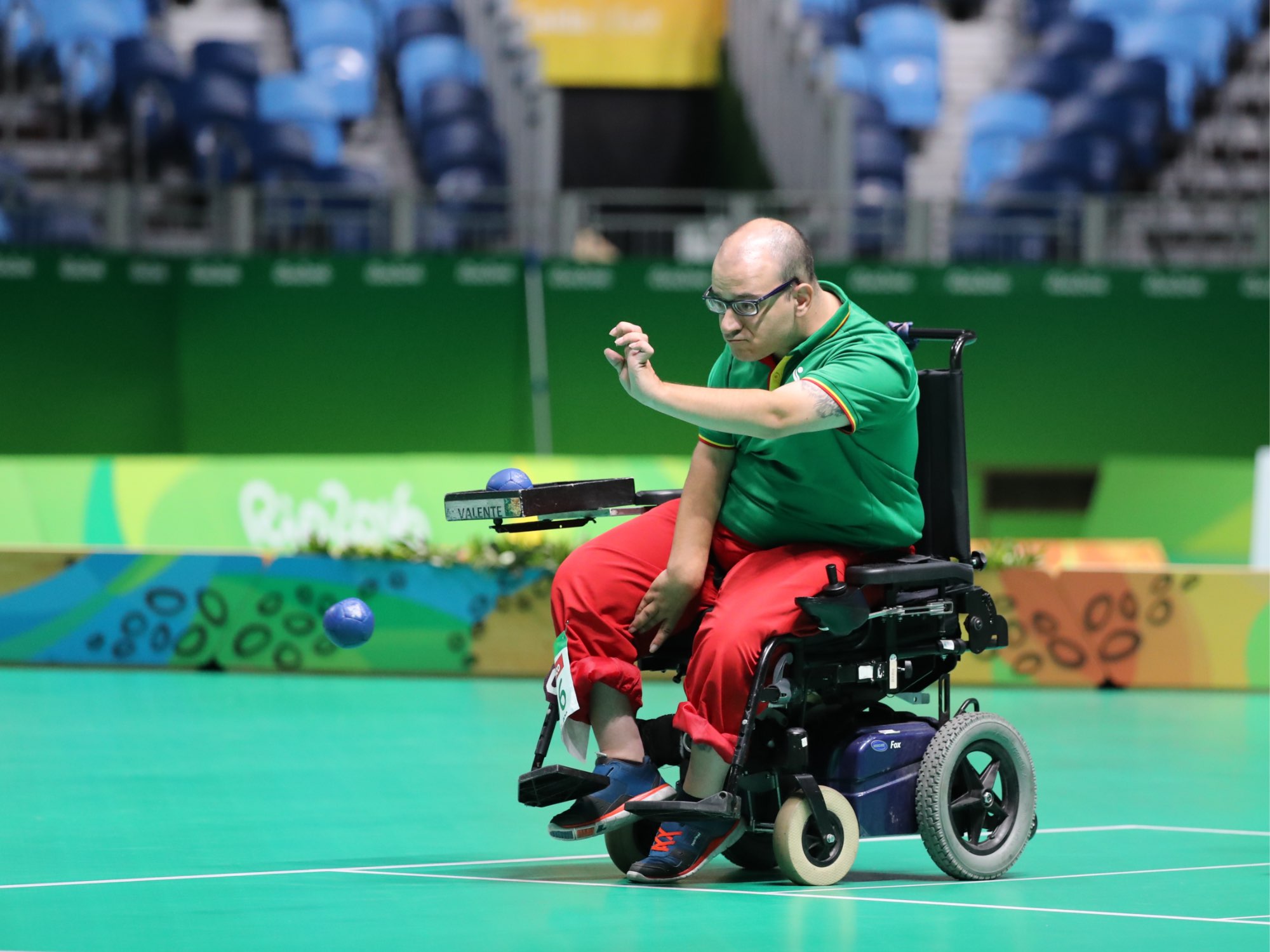
Portugal
Boccia BC2, in action during the Rio 2016 Paralympic Games.
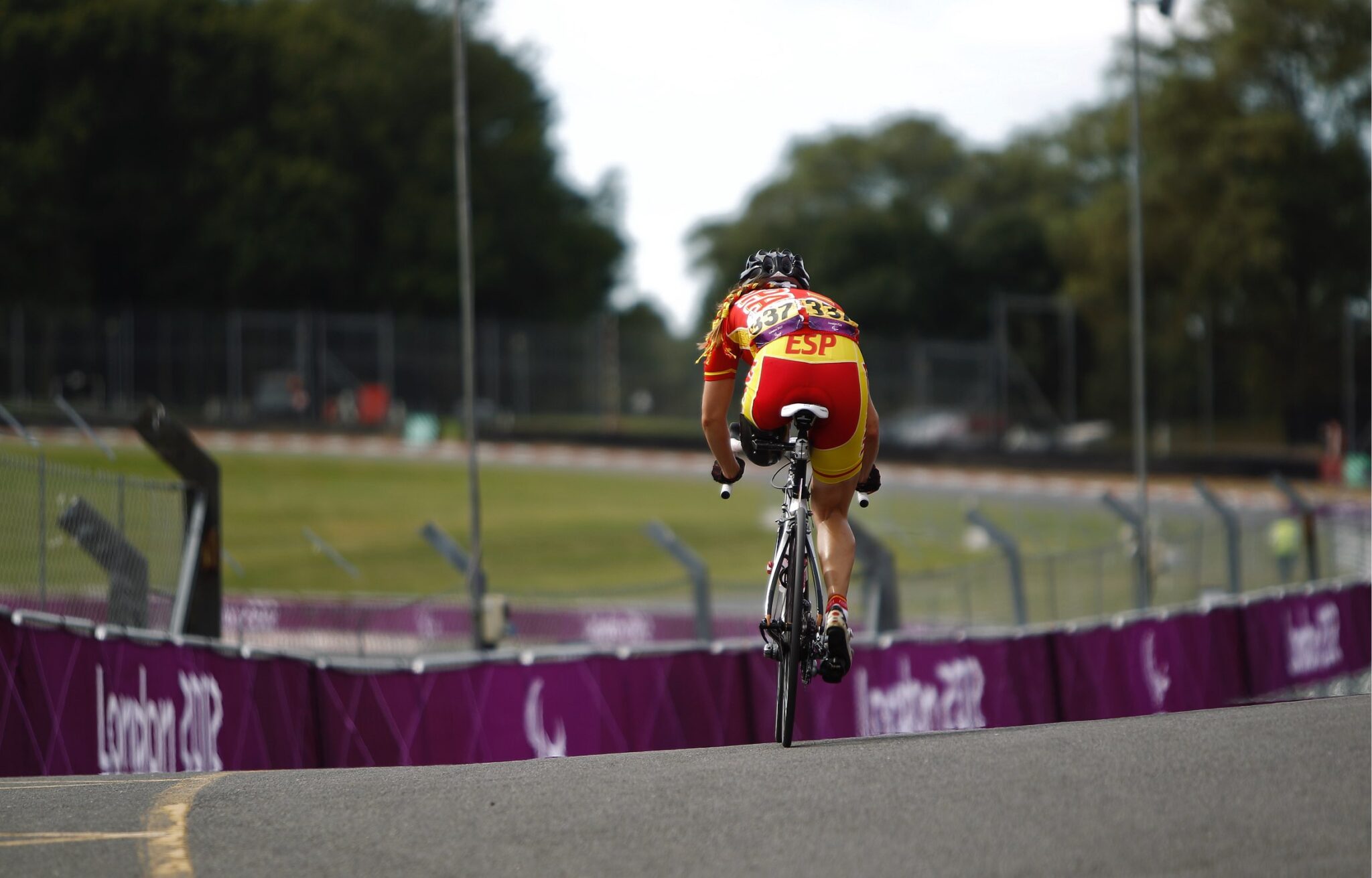
Spain
Cyclist Raquel Acinas at the Brands Hatch racing circuit at the London 2012 Paralympics. She finished in fifth place and received an Olympic Diploma. Photo by Mikael Helsing. Spanish Paralympic Committee.
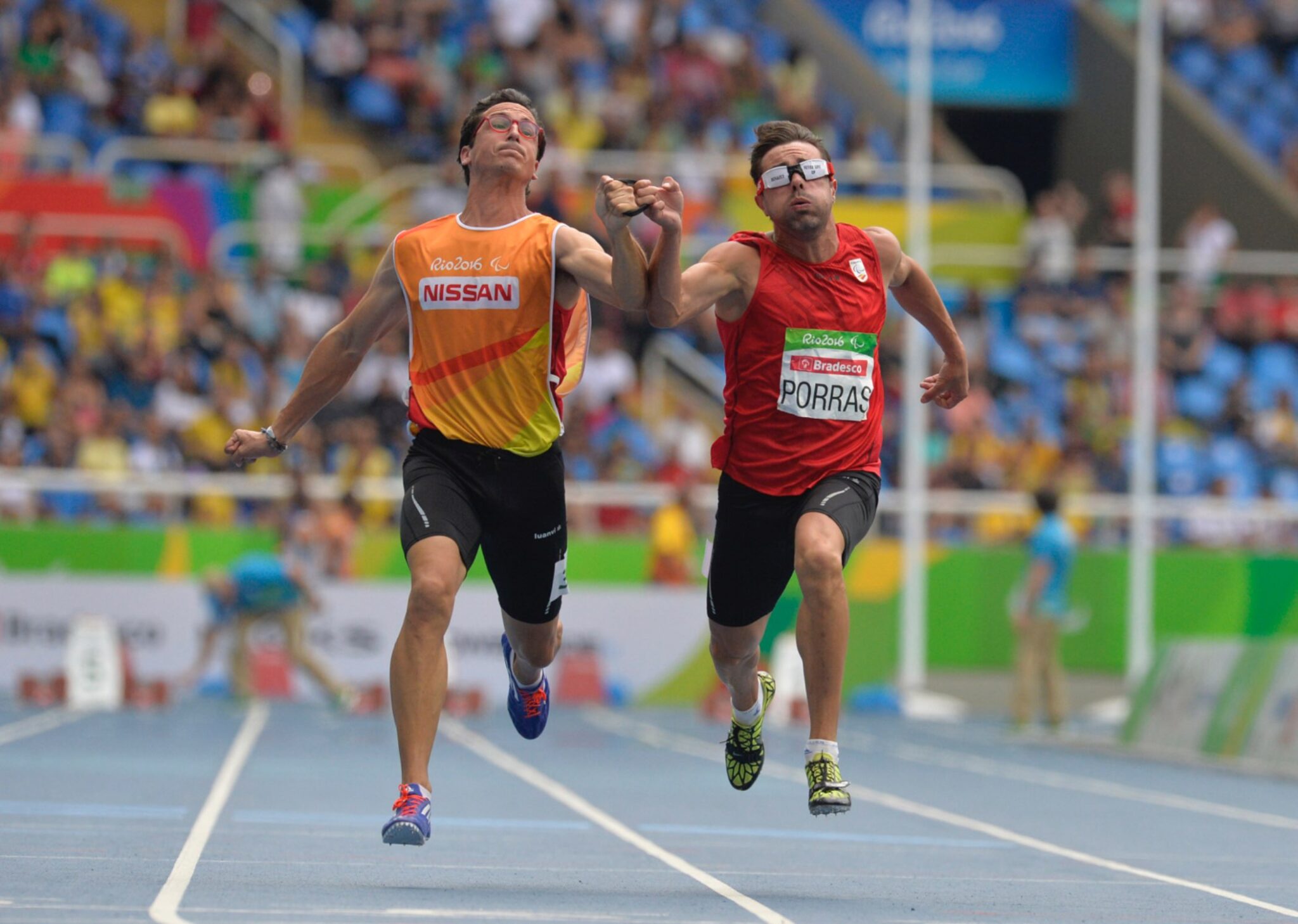
Spain
Athlete Xavier Porras and his guide runner Enric Martín competing in the Men’s 100m T11 qualifying rounds at the Rio 2016 Paralympics. Photo by Paulino Oribe. Spanish Paralympic Committee.
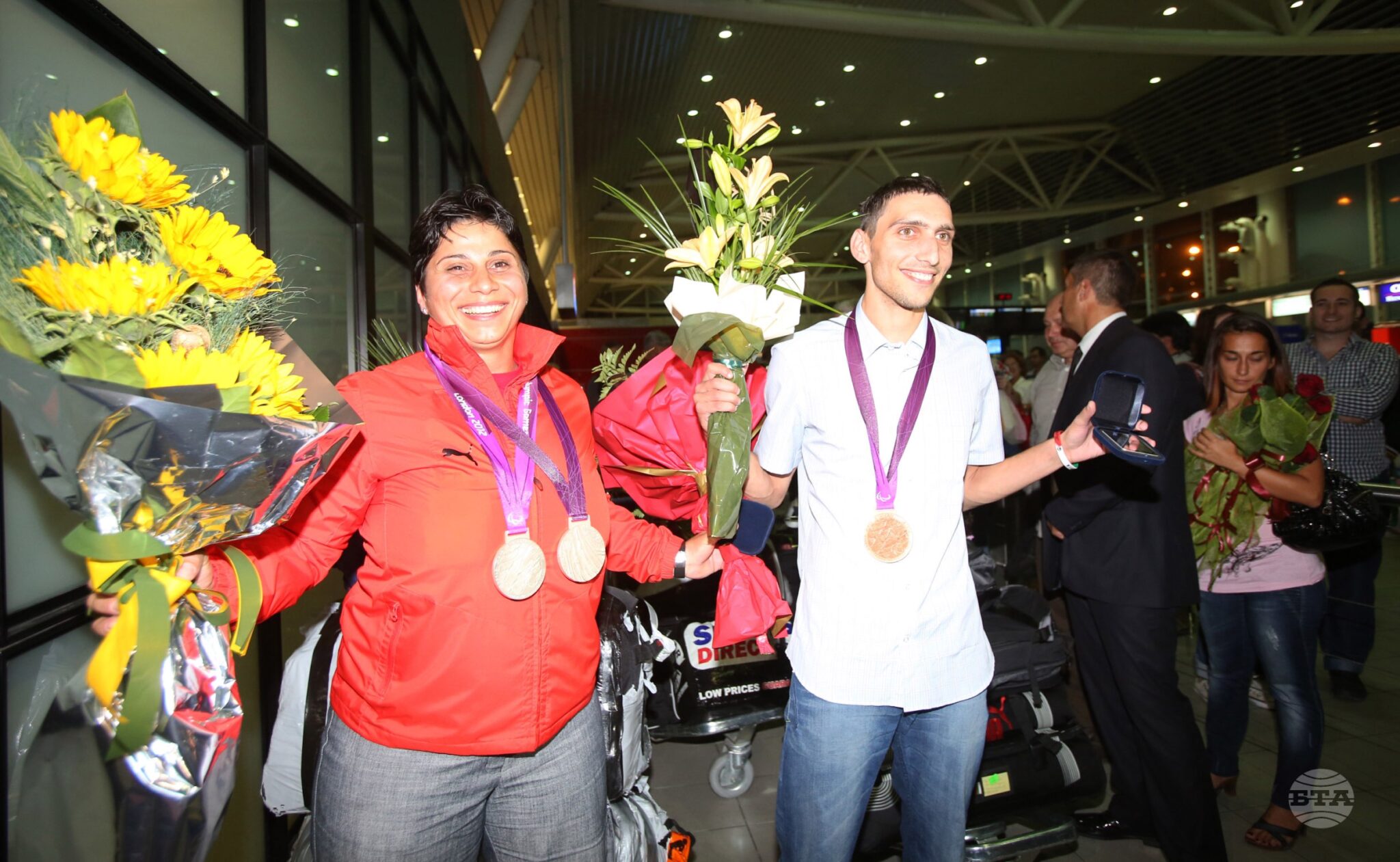
Bulgaria
Stela Eneva and Radoslav Zlatanov, September 2012, London Paralympic Games. The Bulgarian Paralympian Stela Eneva won two silver medals in the discipline cannonball and discus and Radoslav Zlatanov won a bronze medal in the long jump.
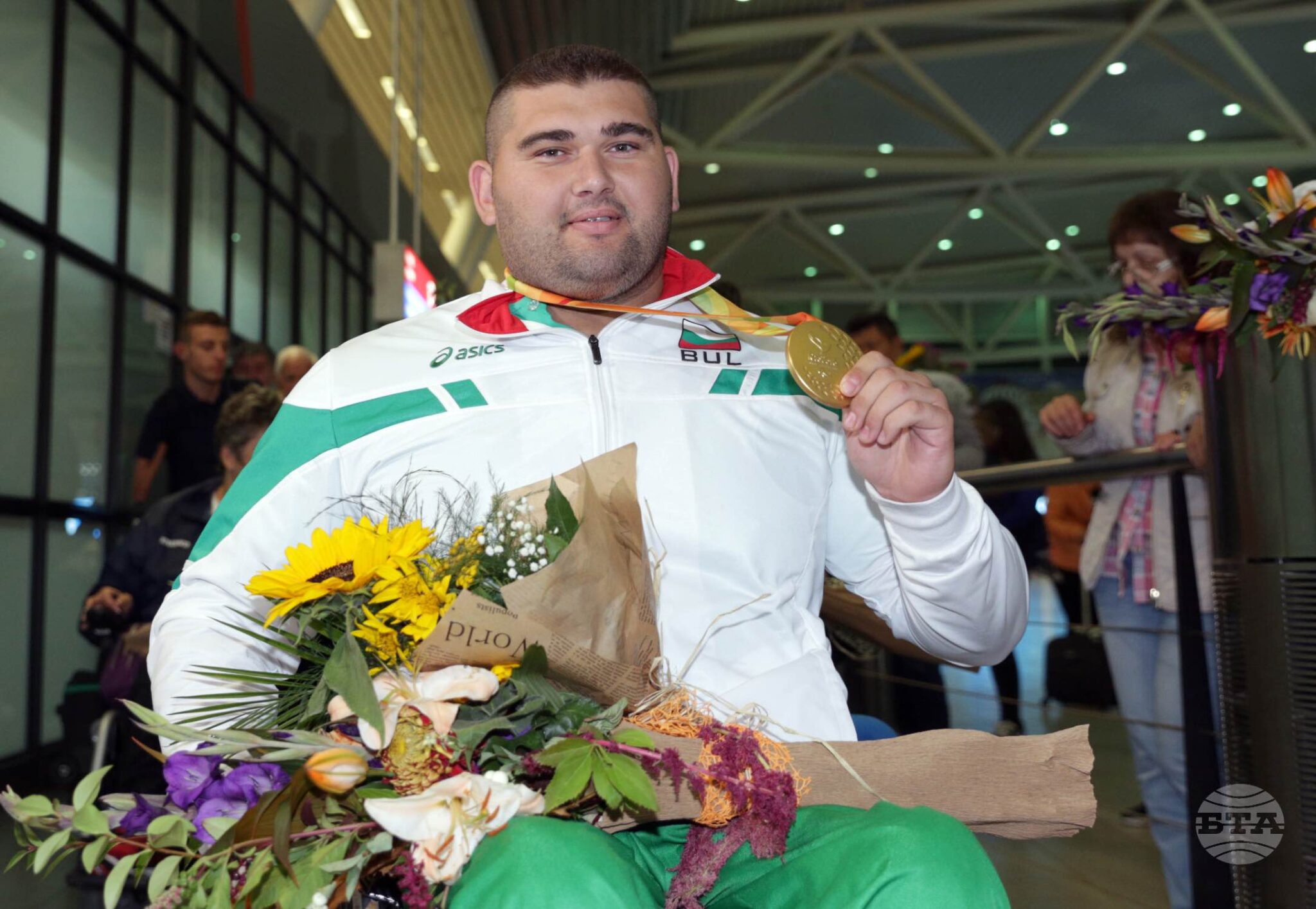
Bulgaria
Ruzhdi Ruzhdi (Bulgarian: Ружди Ружди) (born 14 April 1991) is a Bulgarian Paralympian track and field athlete, competing in throwing events: javelin throw, shot put, and discus throw. He is a world champion in the shot put discipline – in Rio de Janeiro, Brazil, in 2016 he set a new world record.
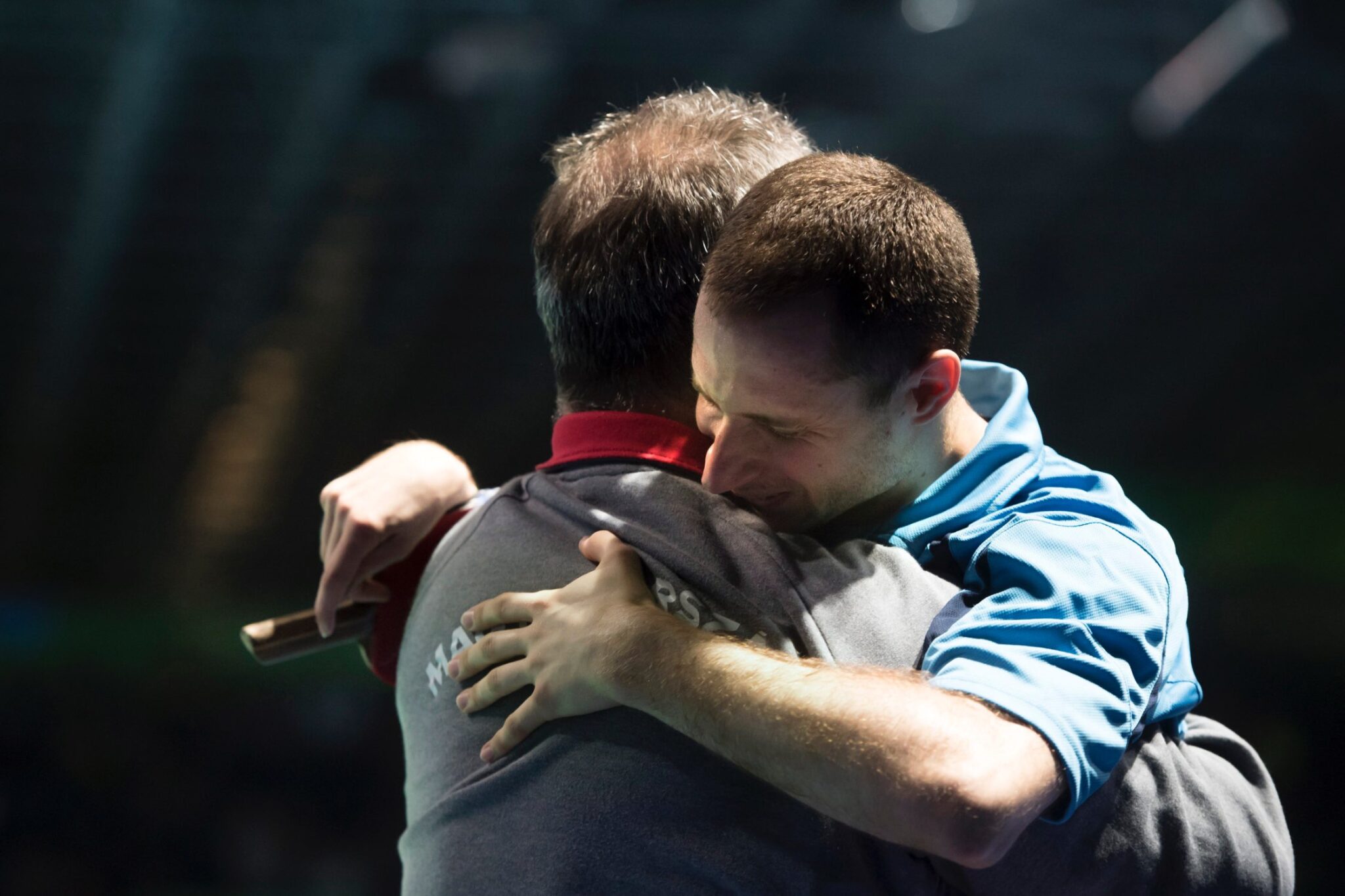
Hungary
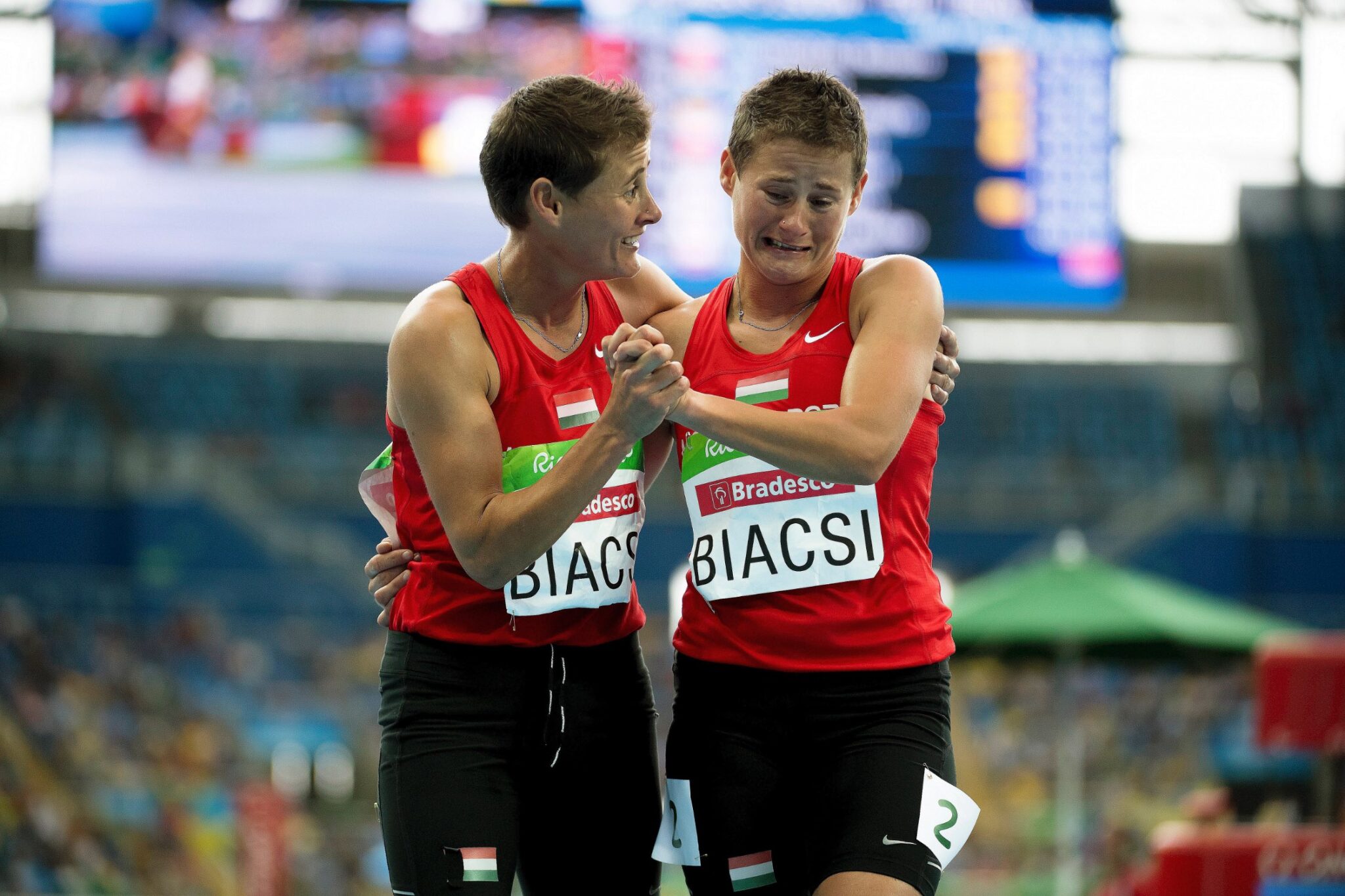
Hungary
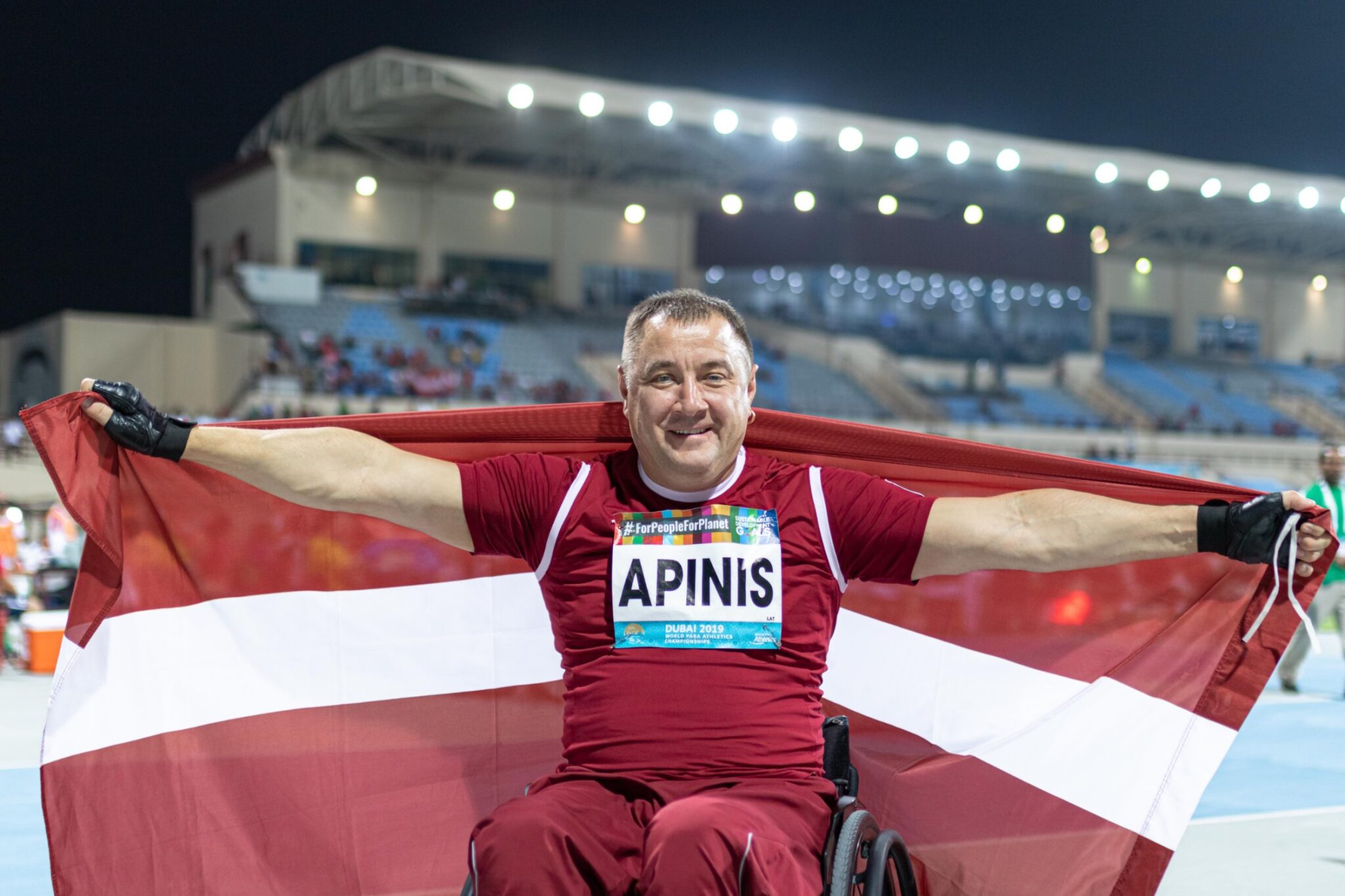
Latvia
Mr. Apinis is Latvia’s greatest and one of the world’s most awarded Paralympians. Since the participation at his first Paralympic Games in Sydney (2000), he has won Gold, Silver and Bronze medals in both of his disciplines – discus throw and shot put.
Mr. Apinis has also won several Gold medals in World Para Athletics Championships and has set world records. For his exceptional achievements he received the highest Latvian State award – The Order of Three Stars and was chosen as the European of the Year 2012in Latvia.
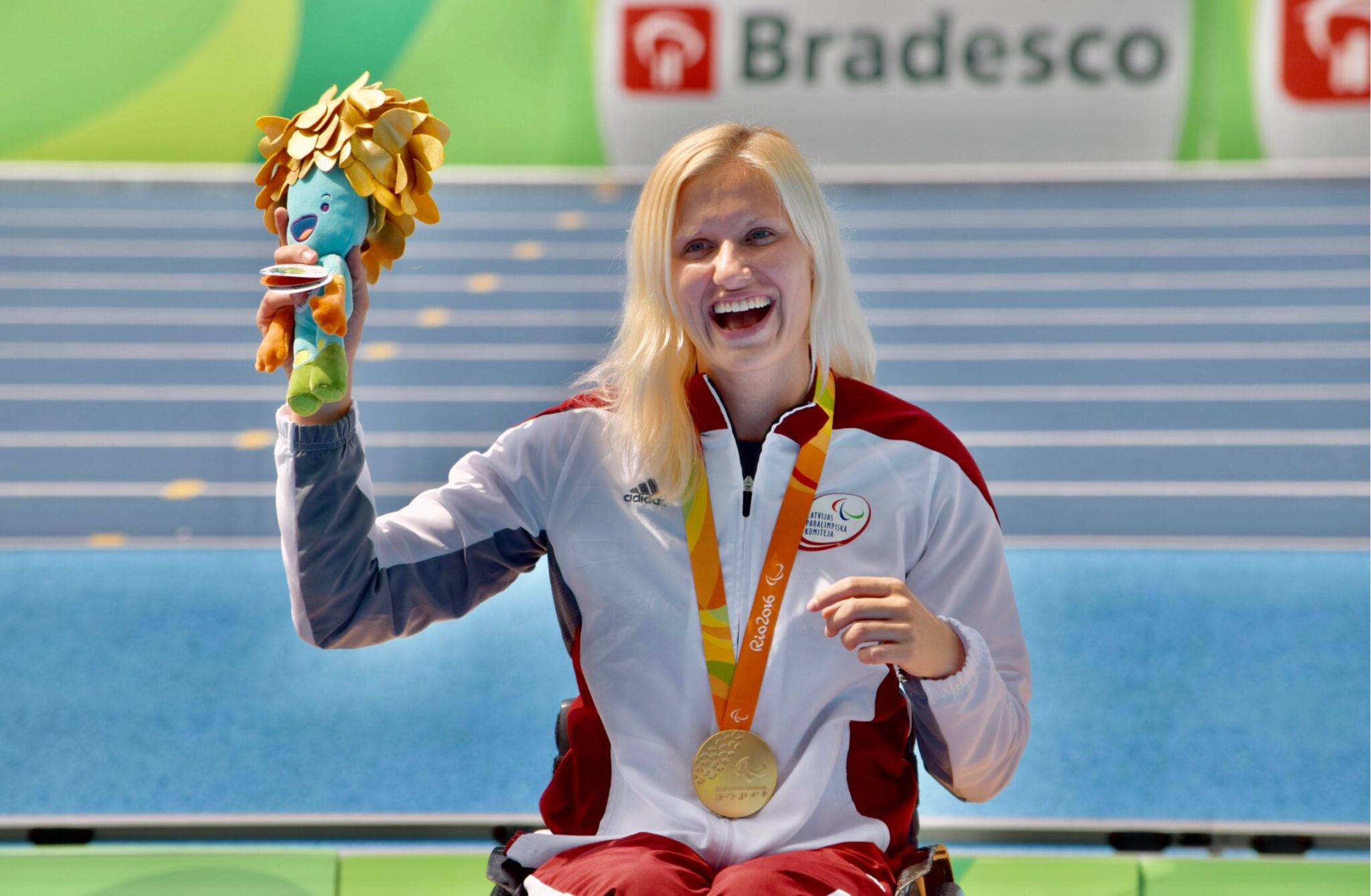
Latvia
In her first Paralympic Games in Rio de Janeiro (2016), Ms. Dadzīte won a Gold medal injavelin throw and set a new world record of 23,26 meters. She also won Bronze medal in discus throw.
Ms. Dadzīte is a holder of World and European Para Athletics Championship titles in all her disciplines. For her outstanding achievements she has been awarded the highest Latvian State award –The Order of Three Stars.
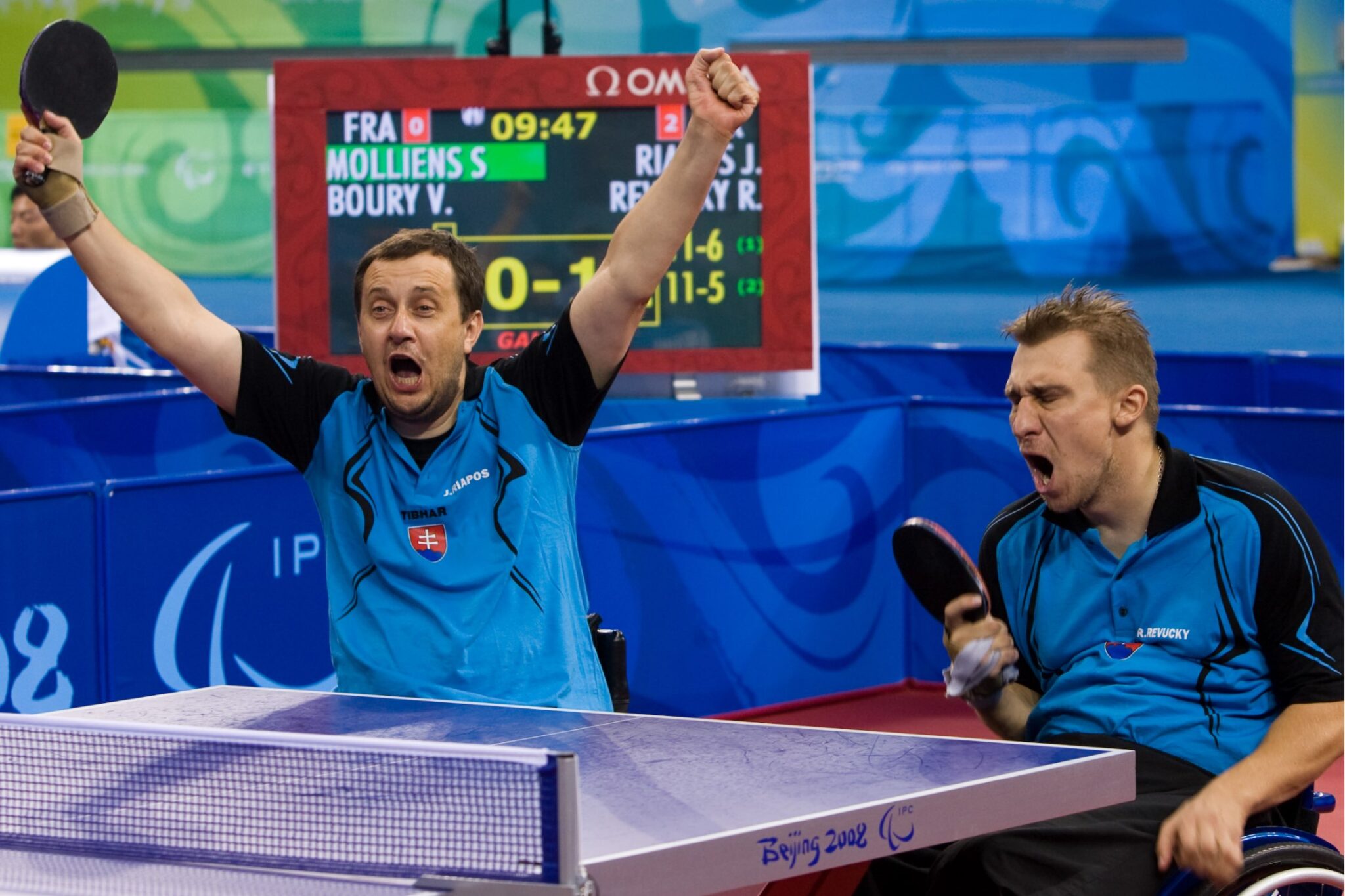
Slovakia
Ján Riapoš (born 1968) is a Slovak para table tennis player. He is currently ranked world number four in sports class 2 and world number 61 in wheelchair sports category. He was involved in a car accident in 1993 and has sustained a spinal cord injury, he uses a wheelchair all the time. In 2003 he became a president of the Slovak Para-Olympic Committee.
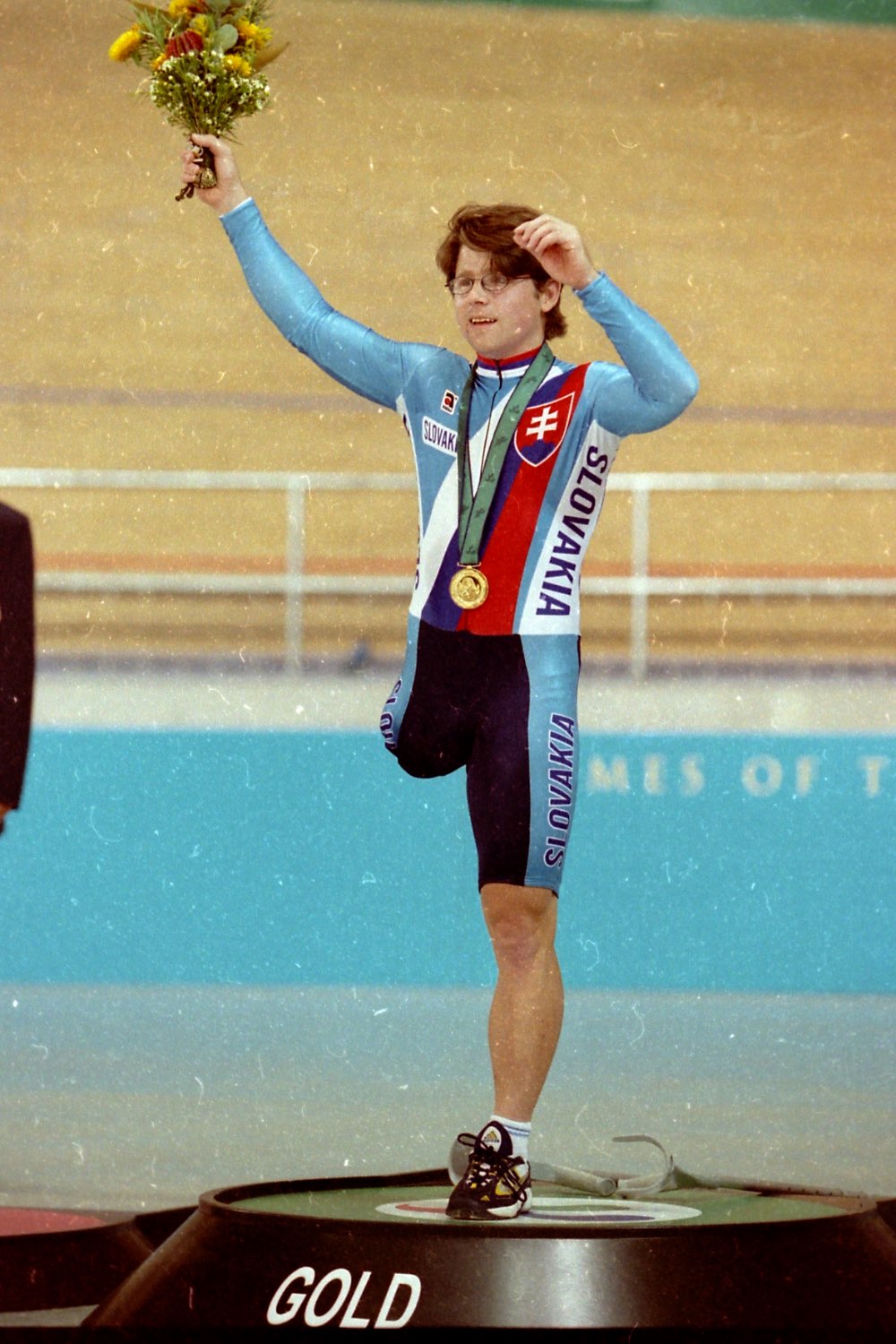
Slovakia
Radovan Kaufman (1978-2003) was a Slovak para-olympic sportsman and a representant in a biking. Chronically suffered from a cancer. On Para-olympic games in Sydney in 2000 he won The Gold Medal in Para-cycling race of one kilometer (as you can see on a picture). In 1998 he was of the World Championship in Colorado Springs and in 1999 in the European Championship.
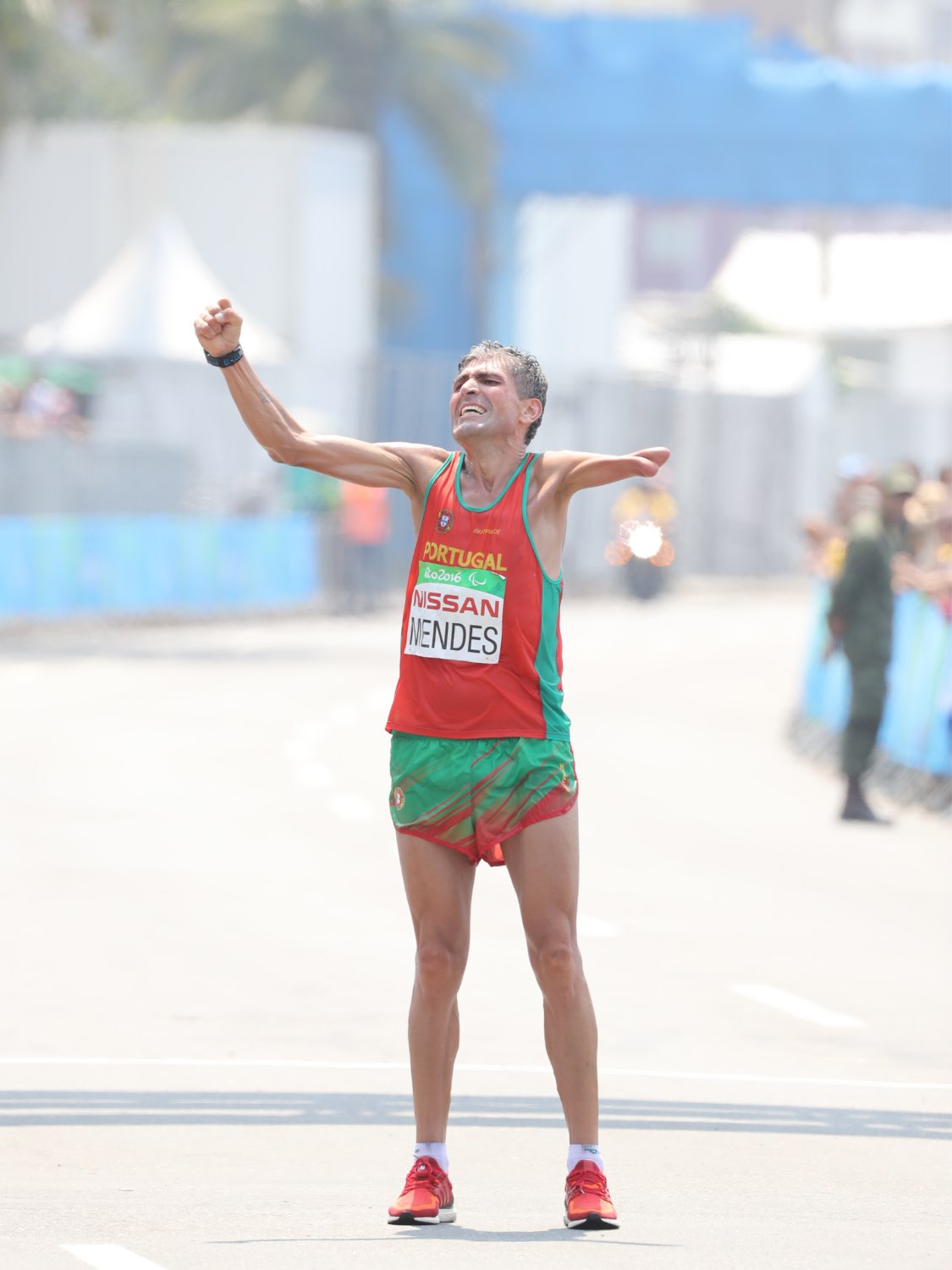
Portugal
Marathon T46, celebrating the moment he won the Bronze Medal at the Rio 2016 Paralympic Games.
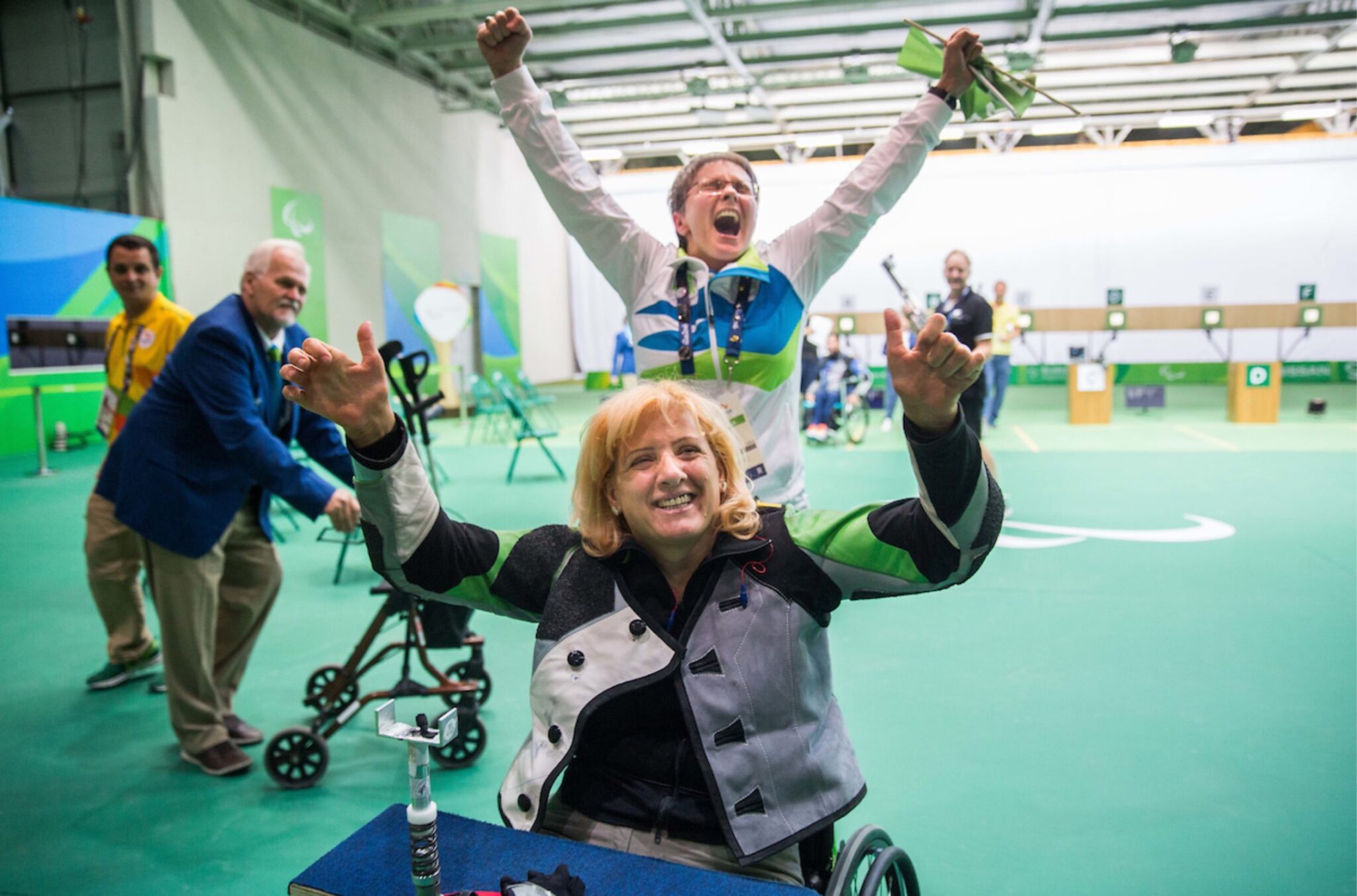
Slovenia
In September 2016 Veselka Pevec became only the second Paralympic gold medalist in Slovenia! The joy in the picture is unwritten, because Veselka has suffered a lot in the run up to the Games. She had a technical fault with her rifle until the coach Polona Sladič fix it. All Veselka’s efforts were rewarded. She went on to set a Paralympic record in the qualification rounds and then became Paralympic champion in the final with her last shot in Rio. Her teammate Franček Gorazd Tiršek took silver. The strength of the Slovenian national team is evident from how well our Para athletes are doing under the tutelage of coach Polonca Sladič.
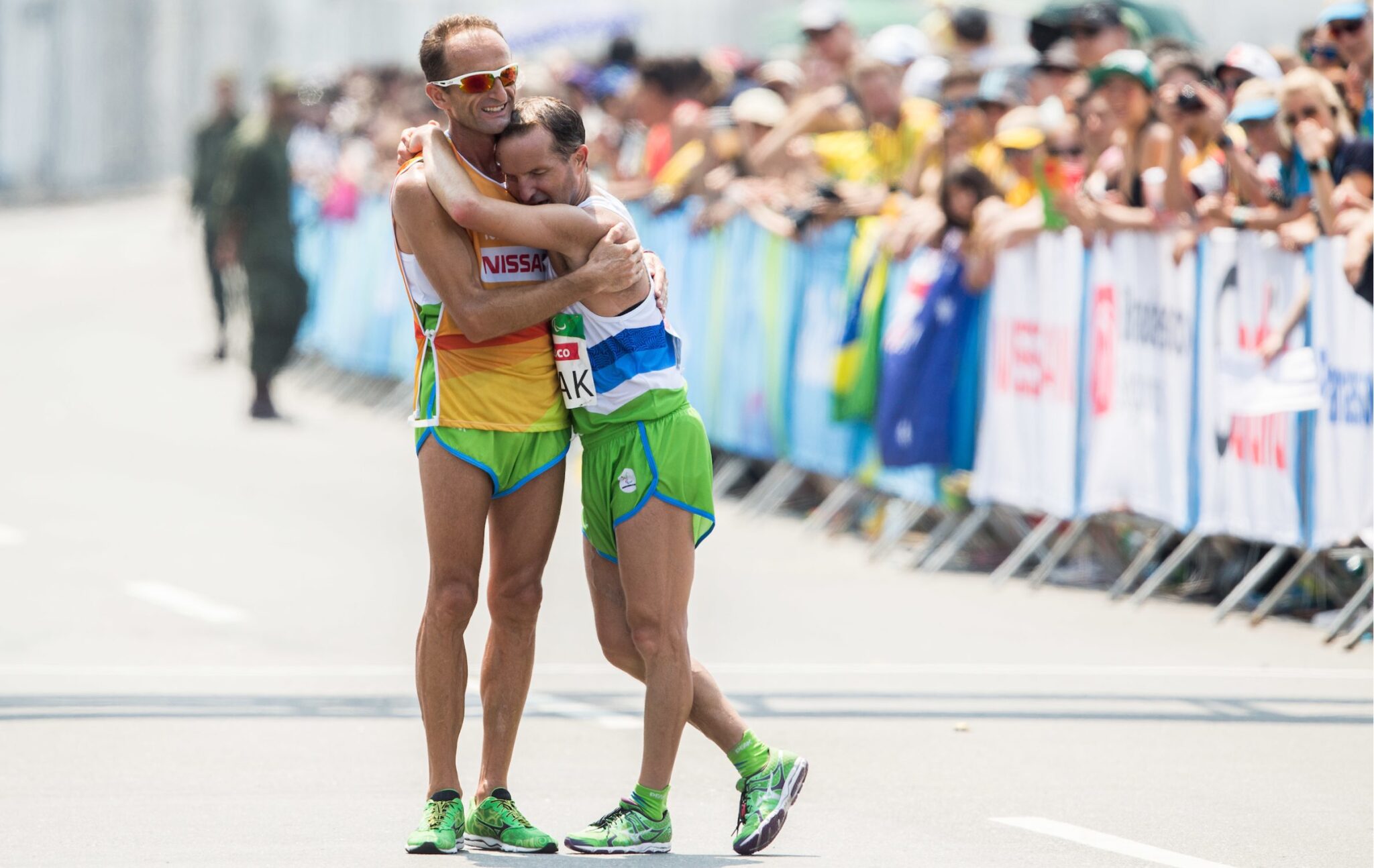
Slovenia
Sandi Novak is a blind marathon runner who found new meaning in walking, and later in running, after a serious accident where he lost almost all his sight. As a teenager he was a talented footballer and teammate of Milan Pavlin and he started his career as a paratriathlete, relatively late, at the age of 34. He was also lucky enough to have Roman Kejžar, who is still the Slovenian marathon record holder, as his coach. Novak reached his competitive peak in 2016 at the Paralympic Games, where he came in 8th in his group, exhausted but happy.
